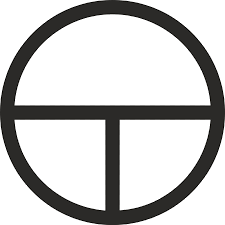Spagyria Practical Treatise
Written by Fulmina Institut
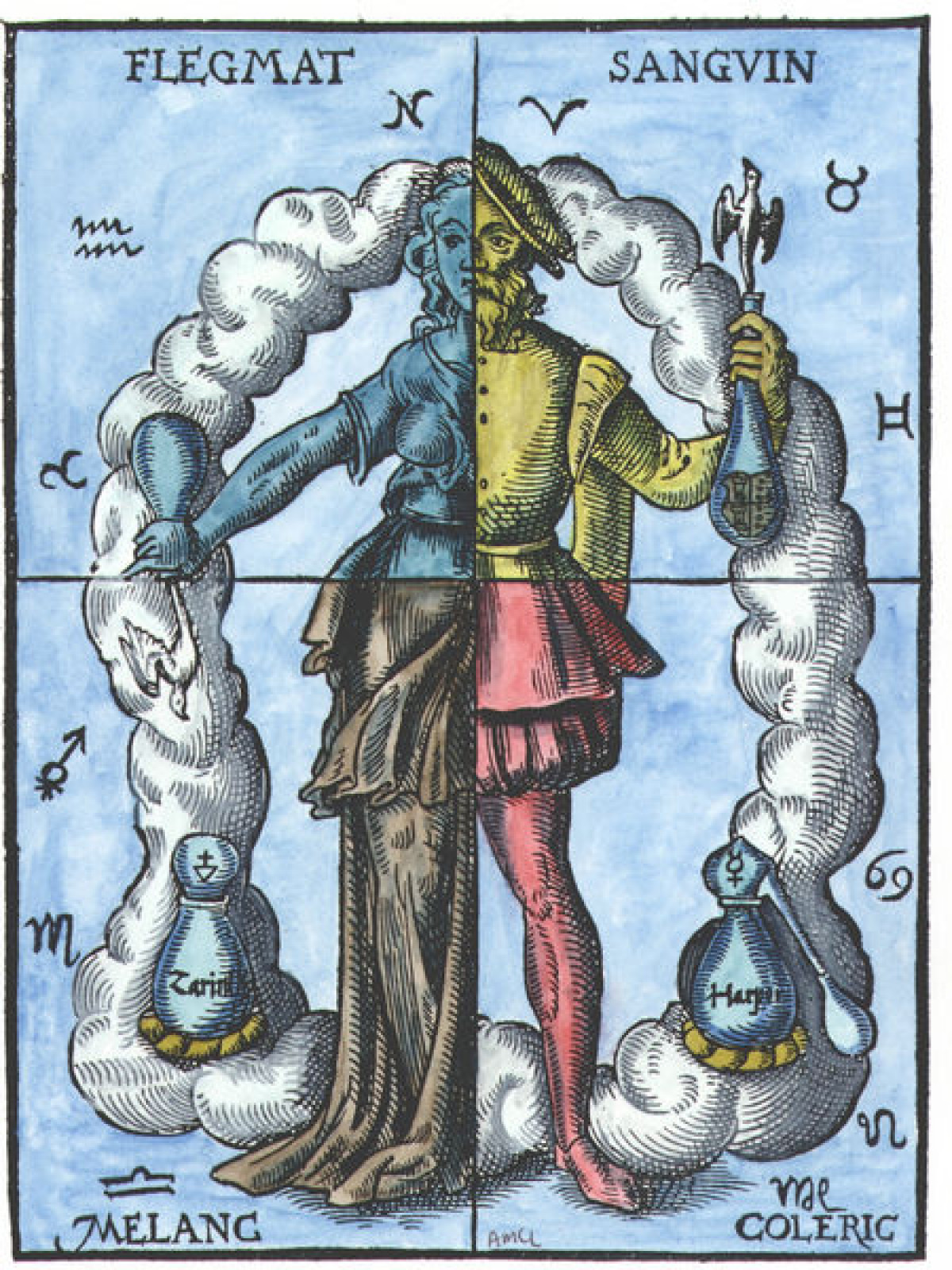
excerpt from “Les Clés d'Arya”
Historical retrospective
We will mention only the indisputable masters in Spagyria, although all those who performed the great alchemical work were spagyrists in terms of research.
We like to quote, about Spagyria, what was written by Daniel Stalcius and widely commented on by the one we had the honour of knowing and appreciating: Bernard Husson, in his admirable collection "Viridarium Chymicum or the Chemical Garden" - bookstore of Medici 1975. If it was not forged by Paracelsus, the term surely derives from its doctrine and will disappear at the same time as the doctrine itself. It (the term) embraces a coherent conception of the nature of the bodies of the three kingdoms considered to be formed under the underlying organizing influence of three active, sulphurous, mercurial and saline principles, in close correspondence with the hermetic notions of mind, soul and body...
To develop a spagyric remedy is to treat the plant, the animal organ or the mineral that contains it, so as to separate by an induced rotting process - the 5 principles, and then to gather only 3 that prove to be active, in a synthesis where the main thing is to unite the mercury with sulfur by the action of salt and a slow cocktion or ripening. In this way a perfect separation of the pure from the impure and an exaltation of the virtues of the quintessence thus obtained was made.
"On a double square, founding the elements, reducing four different bodies into one body, quadrangulating from the sky the circular vaults, of this eclipsed sky establishing roundness, raising by 10 degrees its supreme splendor: it is building in the world a mystery world."
As you can be sure, the kings principles or fires of nature cannot be dissociated from the 4 elements so that the earth can turn and that the “materia prima “(raw material) consisting of the first three, can mature and perfect as much as possible in order to obtain the quintessence of spagyric as well as alchemical.
Apart from the principle sulfur, and the principle mercury, the so-called philosophical and then philosopher’s salt after a first purification and vivification, subsides. This salt remains and will remain throughout the work, both alchemical and spagyric, the only purifying and coagulating mediator link.
Basile Valentin
If he is a mysterious spagyrist as to his date and place of birth – he remains and always will remain.
According to some writings, the latter was born in 1394. His writings began in 1599 and ended with the last will in 1626, roughly 232 years of existence. What to think and what to believe?
Paracelsus
His real name was Philippus Theophrastus Aureolus Bombast von Hohenheim, known as Paracelsus, nicknamed the "Cursed Doctor" no man except later Count Saint-Germain and Cagliostro caused so much uproar around him. He was born in Einsiedeln near Zurich in 1493 and died in Salzburg in 1541.
He's one of the strangest figures of Renaissance. Expert in esoteric astrology, a master consumed in the art of alchemy, this small man of size but tall in thought, practiced cabalistic theurgy, that is, the true magic of the ancient sages of India, as well as an hermetic medicine whose bases rested entirely on secret doctrine. He possessed the treasure trove of treasures, the science of sciences, namely the Philosopher's Stone in the explanation of the mysteries of life and death.
Its existence, like that of St Germain and Cagliostro later, was a life of uninterrupted wandering. He soon renounced the classical teaching of his time. He said in Book IV of his “defensiones”: "Universities do not teach all things. The doctor must look for good women, gypsies, stray tribes, robbers and other outlaws and learn from all. We must by ourselves discover what serves science, travel, undergo many adventures and remember what ion this road can be useful." He fully adhered to the mysterious doctrines of Father Trithème, with whom he remained until 1515. He rejected the medical oracles of Avicenna and Gabier, but he incorporated the conception of Arab alchemists such as Geber and Rhazes for whom the elements of nature are forces in action.
He stood as an opponent of the established laws, burned the medical books of the Greeks and Arabs to focus only on the purest of ancient doctrines, that of alchemy. He was in perfect agreement with the doctrine of oriental yoga. His reputation as a doctor and healer was enormous and earned him the hatred of some well-known contemporaries. The Eratses and Dessenins called him a monster from hell and an "unspeakable path".
Certainly, Paracelsus was a keen follower, carried away, "rebel"; however, all his knowledge he put all of it at the service of his apostolate, of the art of healing. He played the pioneering role in undertaking creative and innovative actions in the field of pharmacology. He obtained resounding healings which earned him the enmity of the brothers whose shops were disintegrating.
His language was obscure only for the layman. Paracelsus was the spokesman and torchbearer of the Rose and the Cross. He was not allowed to say everything, except in a language of perfectly hermetic esotericism.
Paracelsus was the continuation of Pythagorean Ideas, Plutonian, Essene and Neoplatonic ideas, readings of the works of Plato, Plutarch and Jamblique will allow us to approach the sources where he draws water of the initiation knowledge that quenches all thirsts for the soul and spirit.
For Paracelsus, the stars were neither primary causes nor even secondary causes but only "signs, alert symbols" expressing the rhythms of unique life in a holistic relationship (from the Greek holos: the whole, globality, and holis: the sacred) permanent between the planets and Man, between macrocosm and microcosm, between Heaven and Earth.
To understand this authentically holistic global relationship, the existence of beings and things, one must discover the subtle art of correspondence. "The outer Sky," he says, "only demonstrates and indicates the inner Sky." He clarified his thought by declaring that "the wisdom given to us by God dominates the sky and its stars."
It is impossible for us to change the course of fate, teaches us the "cursed doctor" but we have the power to resist him as a wall resists the cannon and even if someone was a child of Saturn and with Saturn at the ascendant, he can escape Saturn, he can become a child of the Sun.
The main idea of Paracelsus is that the stars influence things and beings by imposing their seals on everything, but there is no obligation to respond to these influences if we become spiritually elevated beings.
From this alchemical knowledge, this follower has held that any universal structure has as its analog basis the three principles, which the secret doctrine calls sulfur, mercury and salt of philosophers.
This conception is not typically "Paracelsian" because it is the very foundation of the ancient doctrine that is intended to be global par excellence and for which Man is an integral part of the cosmos, both by his body and by his soul.
The student can only marvel at the immense extent of the work written by Paracelsus. This follower declared aloud an essential truth of creation "the God of macrocosm and the God of the microcosm act on each other, both are one in essence, for there is only one God, a law and a nature by which wisdom can manifest itself". In a word, he reaffirmed the unity of matter and spirit.
Today, Paracelsus' work must revive the world's interest in medical research. The ideas of The Einsiedeln doctor are more relevant than ever, as they allow a new technological approach to the development of useful remedies to cure and relieve the human race. From this medical point of view, alchemy illuminates astrology and spagyria to generate a true and authentic global medicine, that is to say holistic, namely iatrochemy.
In short, what is the purpose of iatrochemy?
This is no more than the application of alchemical philosophical theorems to medical chemistry.
The principles that are draped under the research of the Great Work proclaim the unity of the spirit, the unity of substance, the unity of the essence from which the unity of matter results, the evolution of this matter and the awareness of the forces that act in it and through it.
In the end, for Paracelsus, everything is only divine life, a universal divine life that is producing matter and strength; it is the very consciousness of God that animates the holistic laws of universal life.
Thus, matter is inanimate only in appearance. Metals are endowed with universal life and can receive the imprint of perfect life through the operations of the Great Work, the Great Magisterium of the Wise.
In this way, the iatrochemist doctor can use them to heal, thus recreating life. What is true for metals is also true for precious stones.
Paracelsus’s thought emerges from the following general theory: the unity of mind and matter is the dominant law of the universe, which implies the unity of strength and energy because everything is in everything. It follows that Paracelcus’ philosophy is higher than one might have thought and is therefore perfectly updated and usable in the field of practical medicine of the new age.
Spagyria
This art consists of naturally extracting the pure essence from the mixed.
In other words, the process must be applied by an artist who is well versed in the law of nature.
To do this and in an imperative way, he must be in communion with the latter and treat her with respect and love.
This nature, whether mineral or plant, is given only to those who have understood the above and know how to apply it not for themselves, but for others.
As everyone knows, our good and very old planet supports 4 kingdoms that are: the mineral, the plant, the animal and the human or more precisely the homo who is not necessarily human.
The Mineral
Struck by immobility as to its freedom of movement is however not inert in its evolution, not only possible but also inevitable in time.
Natural elements, such as air, water, solar fire, cosmic vibrations, the influence of the Moon as well as various phenomena, sub-terrain or under-terrain, will actively participate in the evolution of this mineral to transform it into silica, metalloid metal, etc.
The family of minerals is directed and taken over by a group entity, which is hierarchically attached to all beings that participate in the great cosmic whole.
The little pebble that you shake with your foot while being lost in your thoughts is therefore not to be despised because it is from him and by him, simple link of the beginning of things, that will be able to form the chain of life.
The Vegetable
Like the mineral, this reign is very diverse . It is like the first, attached to a group entity.
The important question is how a plant, a tree, etc. would find its food if there was not originally the mineral to compose harmoniously its nourishing land? For it is a fact that any plant is composed of metalloids (potassium, calcium, silica, etc.) and metals (zinc, copper, iron) plus other various trace oligo-elements.
It is therefore important to know that the first link is represented by the Mineral and the second, by the Plant.
The Animal
Here we are in the presence of the third link in this chain of life. Without the plant, which participates in the mineral, the animal would not exist and the intervention of the plant between the mineral and the animal is indispensable because the latter takes from the previous reign metals and metalloids, digests them, vegetats them, in fact the matter passing from one reign to another acquires an etheric, emotional and mental body, makes them assimilable and a soul mineral group, the essence of life will pass to a soul plant and then to an animal group.
Isn't that a transmutation from one reign to another? To gain independence and maturity at every passage.
Man, the last link in the earthly chain. Against other kingdoms, its three principles are a body, a soul and a spirit. His soul and spirit are immortal and the experience and achievement of these three principles return to the source of the "great whole".
We will not talk any further about this last link. Our aim is to make it clear that man cannot do without the three previous reigns as far as his life on the planet is concerned.
Chapter I: The Kingdoms and Principles
The Mineral
The latter can take "physical" form only by the three principles which are: A sulfur, a mercury and a salt, which are specific to his reign and in relation to his hierarchy in the latter.
What must be taken for perfect understanding is that the simple grain of sand is composed of these three principles in proportion and in natural quality. This is a law that concerns other kingdoms but also all "planets".
The Vegetable
By the mineral, as mentioned above it draws its food from the nourishing soil.
All plants are rooted, a main stem and secondary branches, leaves and flowers, and then fruits. The sap of the plant fed by the roots represents the plant mercury and is responsible for the fragrance that reaches both the flower and the leaf or fruit.
The sulphur principle maintains the vital heat of the plant and also gives the color of plants and fruits.
Salt, which consists mainly of two metalloids that are potassium and calcium, allows stems and branches in particular to take shape and stiffness.
All this being explained, simply in order to raise awareness and allow the reader to follow the path.
Indeed, if there is a single missing link to this vital harmony for us, we could no longer evolve and live on this planet because we exist only in a set of reigns united by a need for evolution and governed by a common law that exceeds us in total understanding, and which Man has called God.
The Animal
It also contains the three principles: the body (salt principle), the soul (mercurial principle) and the spirit (sulphur principle). But the animal kingdom is ruled by a group soul and these three principles in their quantity and quality correspond to this reign of evolution.
Human Being
Also subject to these three principles, sulphur (the mind), mercury (the soul) and salt (the body), in a more elaborate form both physical and spiritual.
It is certain that if only one of these three principles were missing in each of the kingdoms and for each individual, they could not exist in any form, and Man could not live on this Earth.
The three principles are therefore the basis of all things and by dying and constant rebirth they pass from one reign to another, each time acquiring an ether of more subtle life, and, a greater independence of life.
The principles of salt, mercury and sulphur all correspond to a particle of matter. By analogy we could equate them with neutron, electron and proton or igneous forces of nature: Mother, Son and Father or action, movement and thought.
The three principles are not only materials but represent an energy that can be fixed in or on a vibratory medium. To allow this ENERGY to incarnate, it is necessary to prepare the receptacle, ennoble it; then the ENERGY will be able to express itself.
Conclusion
The plant also contains these three principles: a sulfur (oil: spirit of the plant), a mercury (alcohol-ether or mercurial water: soul of the plant), and a salt (potassium: body of the plant).
The plant draws from the mineral what it needs: it is then vegetated. It will therefore have in it different metals and metalloids directly absorbable by man, if they are vibrationnaly enough purified.
Spagyric Art will therefore consist of making the salt, mercury and sulfur (body, mind, soul of the plant) parts as noble as possible so that, rid of their faeces (waste) and ennobled by laboratory work, their healing virtues arrive at a pure quintessence and are pushed to the maximum of its vibration. The Plant will then be able to act on the physical, emotional and mental body of man and animal.
These preparations can then be diluted into homeopathic remedies.
Chapter II: Principles and Elements
Although there are three principles: body, soul and spirit, there are 4 elements: earth, water, air and fire, the fifth being the result of the other 4.
Talking about them is not an easy thing because they alone represent a great mystery of nature and would require a complete work.
Although some writings have reached us from elders where they give some explanations, none is really clear, sufficiently explicit and science being currently fragmented, since we separate alchemy, spagyria, astrology, theurgy, yoga, etc., it is difficult for us to fully understand what they really meant. Indeed, in antiquity, some hierophanitic schools taught these disciplines as complementary which were part of the initiation given to students by some teachers of the time, including Pythagoras, Plato and many others.
Few of these writings synthesize between the temperament, elements and subtle bodies of Man (his aura), and show the interaction of one on the other forming our occult being. Even the word occult, which only means hidden, has been misunderstood. The occult sciences are not weird, they have simply been hidden so as not to lose their essence. There will surely come the time when all these things will be part of everyday life. It is only regrettable that science does not ask more questions about this; an exchange and teamwork would be beneficial to all in the medical and social field and would bring greater respect for peoples and our environment.
The Three Principles
Salt, mercury and sulfur: the body, soul and spirit, to purify themselves pass through the four elements. Thus, do the elements generate the 3 principles and the 3 principles generate the 4 elements.
The sum of 3+4 gives us 7, this famous number 7 which represents the 7 layers of our auric envelope, the 7 chakras or wheels of light in relation to the 7 endocrine glands, the 7 worlds where the soul resides, the 7th heaven.
As you see it, you can't separate things. Everything is in everything and what is at the bottom is like what is at the top, with a difference in quality; to realize this, it is sufficient to observe nature.
Salt generates land, mercury, water and sulphur, fire; air is the resulting or sublimation state of one element over another.
Salt, the body, is a materialization of the dry that is in fire and earth.
Mercury, the soul, materializes through the wetness that is in the air and in the water.
Sulphur, the spirit, materializes through the warmth that is in fire and air.
The "non-producer" cold lives in water and soil, a passive element.
1.The Sulphur Principle
Sulphur or spirit is the fixed or latent heat that does not burn but heats gently, it is electricity, it is the dynamic agent of fermentation, it is the masculine principle of seed. It is active in generation and in relation to mercury.
Sulphur is naturally hot, stimulating, fertile. Its intrinsic heat causes the evolution of nature and fights the action of the cold. It resides in the salt (body) that holds it and thickens it more or less.
Sulphur in plants appears in the form of oil, resin sap and it resides in the essential and heady warm parts of the mixtures: it is from it that the quality of the odors is generated.
But sulphur, like mercury and salt, also contains the three principles because it always takes a + and a - to produce a neutral (Son).
The sulphur found in metals is very different from the vulgar sulphur found in the chemical industry, it is composed of a fixed root and a volatile root. It contains in abundance untotted moisture or coagulated gas vapour.
It is not found alone and separate in the mining industry. It is still hidden in the mining land.
Its essence is oilseed, subtle, penetrating and flammable; it is difficult to reduce in principle pure, only the hermetic operations of the Great Work of the wise can achieve its fixity, which will determine its state of purity of incombustibility.
It is the male principle of all seed and from it is born the fundamental red color. In Man it corresponds to the spirit and the monad.
It is governed by the combined elements of fire and air.
Fire gives it the reactive and irritating action of the dry on the hot, causing violence and responsiveness.
The air gives it the expansive and dilating action of the hot on the wet causing molecular attraction.
When the sulphur principle contains a certain amount of salt and terrestreities, (land-litterates) - it is called unclean. It is then the cause of the beauty or deformity of the animals, the different colors of the plants as well as the conductivity and maneuverability of the metals.
It preserves the body from corruption. It softens the acrimony of salts and spirits (gas).
It protects plants from cold and frosts (firs, cypresses, etc.).
Vulgar sulphur, the sixteenth element of Mendeleev's periodic classification, contains a lot of unclean sulphur. It can be recognized for its smell and taste. It cannot be suitable as a raw material used to make the Great Work. The vulgar sulfur is an impure fat of nature, it is combustible while the principle sulfur of philosophers is a pure fat of nature: it is a non-combustible principle.
Sulphur has a name in every kingdom: it is called simply sulfur in the mineral kingdom, oil in the plant kingdom, fat in the animal kingdom and spirit in the human kingdom.
2.The Mercury Principle
The soul mercury is a subtle, volatile, mobile, spiritual humidity of a generating nature; it is the feminine principle of seed. It is passive in generation and relative to sulphur but is active in its mobility.
Mercury resides in water, its vehicle in plants.
It holds the smell in metals.
It is strongly combined with sulfur by salt.
It is the second active ingredient in the Great Alchemical Work.
It is very different from the vulgar mercury of the chemical industry.
The mercury of alchemists has the power to improve the purity of gold so that it can no longer be reduced to body other than with itself by a slow metallic decoction.
In itself, vulgar mercury is not a metallic principle and it cannot be, as it stands, one of the protagonists of Hermes' Great Work (magisterium).
The vulgar mercury is an imperfect finite metal while the mercury principle of philosophers is a metal principle and not a finished metal.
In the vulgar mercury, the wet part dominates over the dry or airy part. In the mercury principle it is exactly the opposite; the dry part (air) dominates over the wet part (water). This is the difference between vulgar mercury and the philosophers' principle mercury.
Mercury principle is a principle of vaporous, gaseous, subtle, mutative nature, governed by the combined elements of air and water
It is the neutral principle of any seed, it is the unifying principle of the male (sulphur) and the female (salt), the one that ensures the link between the principle sulfur and the salt principle. It is of neutral polarity. By the presence of air, it participates in sulfur principle and by the presence of water it participates in the salt principle.
By air, it gives mercury principle its expansive and dilating action.
By water, it confers its coagulation power on the mercury principle and allows it a fixing action of the cold on the wet.
From him comes the basic color white or black.
In Man he corresponds to consciousness and soul.
It appears in the resolution of the bodies in the form of a very subtle liquor. It is the most excellent and noblest of the three principles of philosophers.
In the dissolution of things, it presents itself first to our senses.
Mercury principle is a light, subtle, penetrating substance. It gives life and movement to bodies; it makes them vegetate and grow.
Since mercury is continuously in action and in motion, it would not remain in the body for long if it were not retained by the other two principles: sulphur and salt.
It can be noted that where mercurial vapours predominate, i.e. the subtle substance of mercury, animals and plants perish much faster than minerals and metals. The compounds (mixed) of where mercury predominates, do not have a sustainable lifespan.
3.The Principle Salt
Salt or body is a negative principle of the condenser, reactive and coagulating nature. It thickens the mercurial water that dissolves it and fixes the sulfur into the Earth.
It intimately unites sulfur (the mind) and mercury (the soul).
It is the principle of conservation and opposes corruption.
It remains attached to the terrestreties until they are separated by leaching.
It is discovered as soon as the volatile substances are evaporated or exhaled, the crystalline substance remains attached to the terrestretities until they are separated by dissolution and evaporation.
It is then that it presents itself to us in crumbly body, easily reduced in powder which testifies to its dryness. This dryness of the earth that composes it attracts so powerfully the moisture (water) of the air that in a short time it is reduced to liquor, which does not wet the hands.
Salt is purified by fire and then becomes incombustible.
It retains the mind or mercurial steam (which is none other than water, moisture or volatile alcohol from mercury).
It preserves sulphur from combustion. It serves as the basis and basis for the sulphur principle and mercury principle.
It is he who makes the bodies, where it abounds, durable and almost incombustible. For example oak, fern, vine and acacia contain little sulphur (oil) and a lot of salt (body), which is why they are of a long life and symbolize immortality.
Salt is a dry nature principle governed by the elements of earth and water. From it are born the shape and weight of the material and the fundamental color white and yellow.
In Man it corresponds to the body.
By its water, its moist part, the salt exerts a coagulating and fixing chilling action of the cold on the wet. The cold action on the wet thickens and adds to the salt by turning it into water and making saline water a principle of circulation.
By its earthly part, the salt becomes a concentrator and a receptor for the dryness and heat (fire) of the male (the sulphur) with which it unites.
The Earth is characterized by a reactive action of salt on the cold, this is what gives the salt its power of cohesion and clotting.
These three constituent principles are found in water and vulgar Earth that serve as a matrix, a vehicle and a base. Fermentation or fertilization is born in soil and water.
The 4 Elements
Fire in the work of the generation: it gives spontaneous impulse, it is dynamic principle, it generates movement through its action; the igneous soul is in him.
The Air tempers the violence of fire, harmonizes the movement, measures the action. It fertilizes the land and water from which the putrefaction is born, which always precedes the generation.
The water, which has been volatilized by fire, also falls back to the earth to pick and corrupt germs fertilized by air and animated by fire. Water gives rise to putrefaction in the earth through the action of the air.
The Earth receives the animation of fire by means of the dry and fertilization of the air by means of water that generates putrefaction as in a matrix. The earth is the receptacle of fertilized germs.
The generation is thus born in the earth and in the water both rotten by the air and animated by fire. We have here, the origin of the constitutive principles, which alone directly generate the substance of the mixed, being neighbours of matter.
Obviously all this is a little complicated but perhaps you will better understand it by explaining the analog relationship with the subtle bodies (auras) and the temperaments that compose us because it is not the material that makes the aura but the aura that creates the material and one without the other does not exist.
Chapter III: The Alchemy of the Body
The ancient texts speak of the halo of the saints; is it not said that when John passed through the crowd, his shadow healed the sick! Isn't science looking for other parallel worlds through the approach of quantum physics.
The difference between subtle bodies and temperaments is that, one is external to Man (around him), and the other is his support, his temperament expressed in his physique.
The auras are 7 (surely more) and each is attached to a chakra or wheel of light that itself animates an endocrine gland. These glands are themselves related to a temperament.
Below is a diagram and a table of matches.
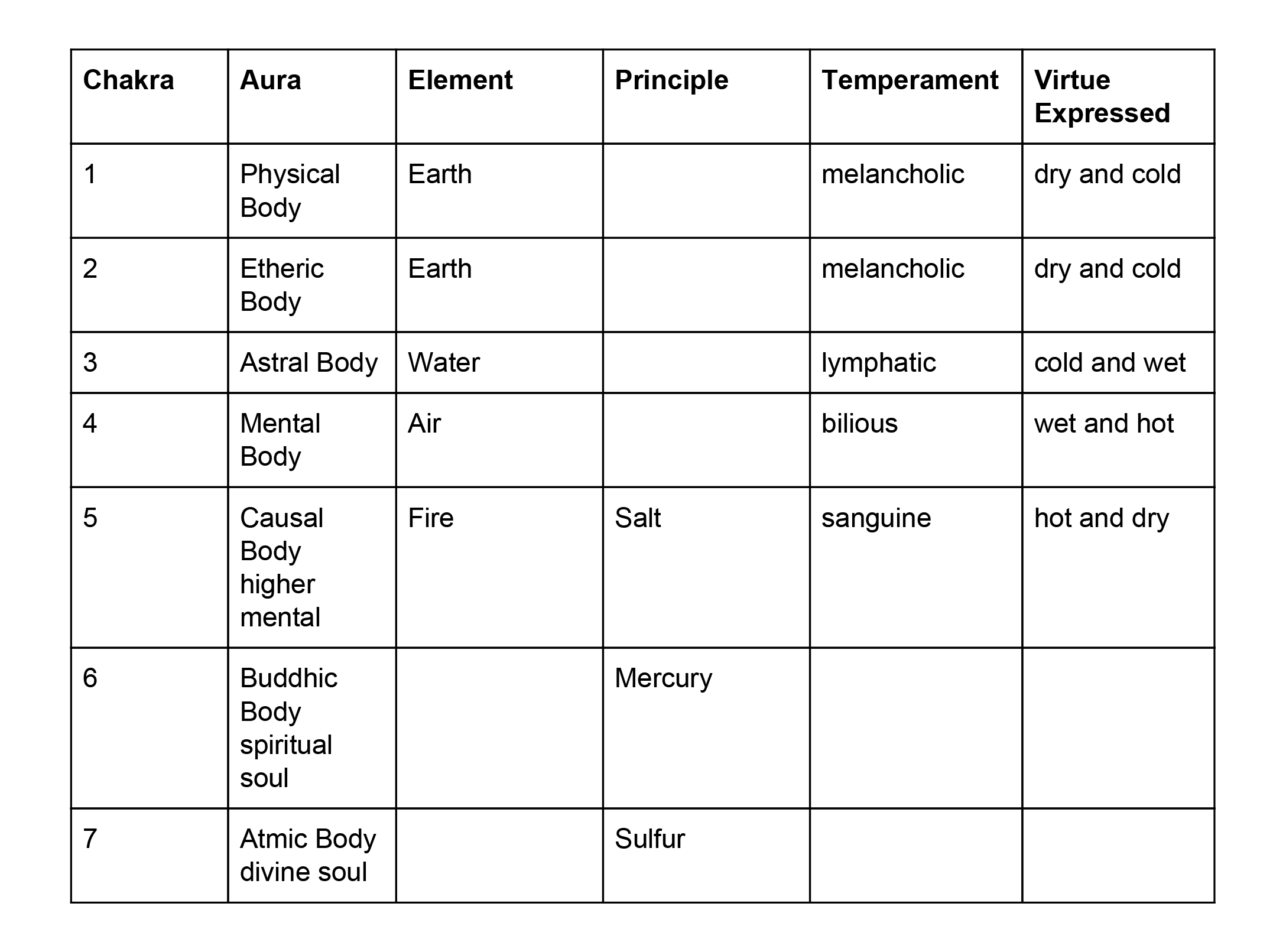
Endocrine Glands
Chakras (çakras) | Endocrines Glands |
1 | Adrenal |
2 | Gonads |
3 | Pancreas |
4 | Thymus |
5 | Thyroids and Parathyroids |
6 | Pituitary gland |
8 | Pineal |
We will give you an example of reflection on this table which I think will better explain the illness or the pain of living that we all experience at some point in our lives.
Every thought, inspiration, sorrow, emotion, everything that the human being experiences, suffers, shares has an impact on his physical body. If the causal body (fire), our higher soul desires to communicate our way to us, the information will pass through the mental body (air), which after reflection will give the impulse or desire to the astral body (water). Depending on our emotional, the information will be picked up by the upper or lower astral body and will affect our physical body for good or ill, by the endocrine glands. In our body each gland is related to a temperament and if the information is very emotional, then it will be the pancreas, which will be affected but later the lymph. On the other hand, if by an astral body and a well-regulated diet the information has not been blurred but made neutral or dominated by the upper bodies, the reaction will be neutral or essentially beneficial.
But let's give another example with the elements for analogy:
Water (emotional body, pancreas) that is vanished by fire (astral body, thyroid) falls in rain on the earth (physical body, adrenal, gonads) to circulate and corrupt the germ fertilized by air (the mental body, thymus) and, animated by fire, water (the astral body) gives rise to putrefaction (physical awareness) in the earth (physical body) by the action of the air (mental body of reflection).
Try to think and go back a little bit and reread the principles and the elements, changing the subtle words. You will find that the text takes on a different meaning.
We hope to have answered a few questions through these lines, but to say more would only serve to complicate things in so few pages. These are only to bring to a larger number some reflections.
The Chakras (çakras)
Chakras are at the origin of the materialization of the endocrine glands. The functions and regulation of the endocrine system are guided by the evolution of the Consciousness of Beings.
The awakening of this consciousness induces the activation of one or more chakras.
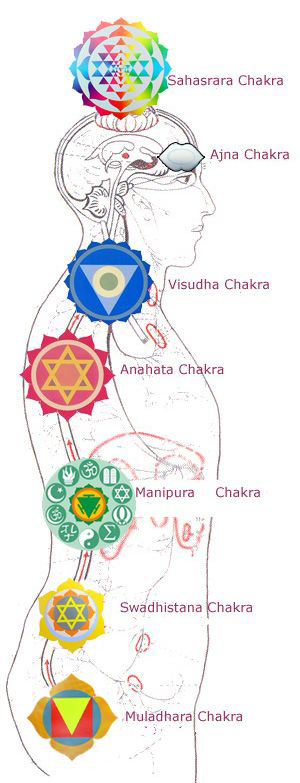
Chakras and The Beings
The 7 physical states, the successive and resulting emotional and mental states, depend on the degree of mental control of the being on the one hand, and the application of automatic endocrine regulations on the other. The latter obey the laws of attraction-repulsion between glands and groups of glands whose understanding is facilitated by the knowledge and understanding of the seven-branched candlestick.
In the seventh state, the Being is concerned only with the instinct of survival, feeling coarse sensual desires and having thought-forms that structure only the organism.
In the first State, it is the development of consciousness, the desires for justice, ideal and the concepts of universal harmony that dominate.
Dualism prevails as long as the mastery of the Fourth state is not present in a lasting way, with its law of love and its search for beauty, altruism and the manifestation of a selfless power to extend harmony.
This evolution is often interspersed with incidents during the adaptation phase following the activation of a centre. The induced disorders are determined by the nature and energy of the corresponding center.
Chakras and Rays
Each Chakras (or center) is related to a divine Ray.
These are 7 Rays and are 7 primordial differentiations of everything that exists. These are the seven spirits who are before the throne of God.
Table of Correspondences Between The Chakras (çakras, center) And The Rays
Excerpt from the book (The çakras" by Michel Coquet (Devry-Publisher)
Head Center - SAHASRARA- çakras
First Radius: Will or Power
Special virtues: strength, courage, firmness, fidelity resulting from an absolute absence of fear, the power to govern, the ability to grasp the big questions with a broad mind, to handle Men.
Vices of the ray: pride, ambition, stubbornness, hardness, arrogance, desire to dominate others, obstinacy, anger.
Virtues to acquire: tenderness, humility, sympathy, tolerance, patience.
Frontal Centre - AJNA- çakras
Fifth Radius: Concrete Knowledge
Special virtues: strictly precise notions, justice (merciless), perseverance, common sense, righteousness, independence, keen intelligence.
Vices of the ray: harsh criticism, narrow-mindedness, arrogance, character not knowing how to forgive, lack of sympathy and respect, prejudices.
Virtues to acquire: respect, devotion, sympathy, love, broad-mindedness.
Throat Center - VISHUDDHA - çakras
Third Radius: Active Intelligence
Special Virtues: great view on all abstract questions, sincerity of intentions, clear intelligence, ability to concentrate on philosophical studies, patience, prudence, absence of this tendency to torment oneself or for others about trifles.
Vices of the ray: intellectual pride, coldness, isolation, inaccuracy about details, distraction, stubbornness, selfishness, exaggerated criticism of others.
Virtues to acquire: sympathy, tolerance, devotion, precision, energy, common sense.
Heart Center- ANAHATA - çakras
Second Ray: Love, Wisdom
Virtues of the ray: calm, strength, patience and endurance, love of truth, fidelity, intuition, clear intelligence and serene character.
Vice of the ray: to be absorbed too much by study, coldness, indifference towards others, contempt for mental limitations in others.
Virtues to acquire: love, compassion, selflessness, energy.
Solar Plexus - MANIPURA- çakras
Sixth Ray: Devotion
Special virtues: devotion, unity of intent, love, tenderness, intuition, loyalty, respect.
Vices of the ray: selfish and jealous love, exaggerated support on others, bias, tendency to disappointment, bigotry, superstition, prejudice, premature conclusions, violent angers.
Virtues to acquire: strength, self-sacrifice, purity, truth, tolerance, serenity, balance and common sense.
Sacred Center- SVADHISTHANA - çakras
Seventh Radius: Ceremonial Magic
Special virtues: strength, perseverance, courage, courtesy, great attention to detail, self-confidence.
Vices of the ray: formalism, bigotry, pride, narrow-mindedness, superficial judgment, too much indulgence for personal opinion.
Virtues to acquire: realization of unity, broadening of mind, tolerance, humility, kindness and love.
Dorsal Spine Base- MULADHARA - çakras
Fourth Ray: Harmony
Special virtues: great affections, sympathy, physical courage, generosity, vivacity of intellect and perception.
Vices of the ray: self-centeredness, tendency to torment, inaccuracy, lack of moral courage, strong passions, indolence, extravagance.
Virtues to acquire: serenity, confidence, self-control, purity, selflessness, precision, mental and moral balance.
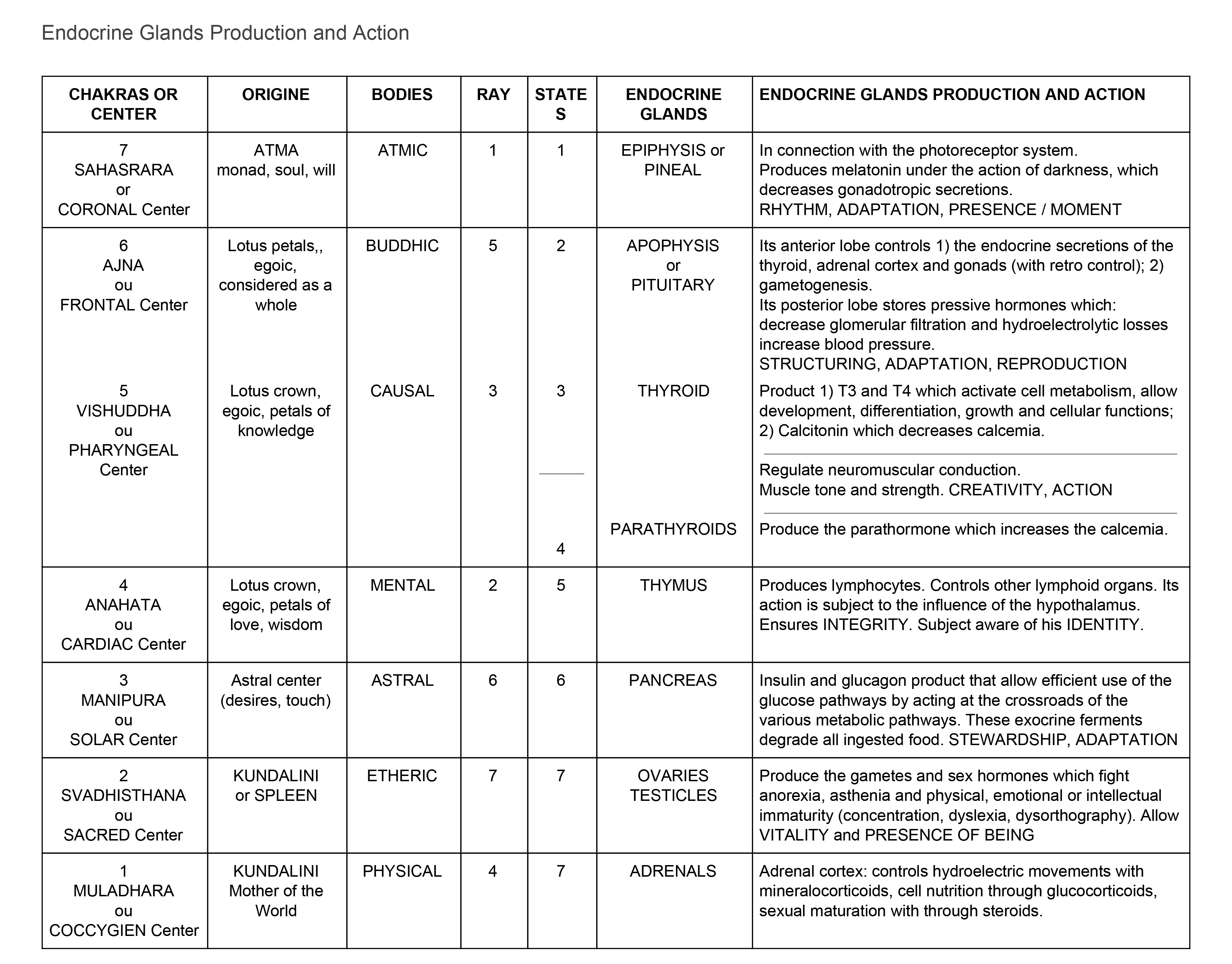
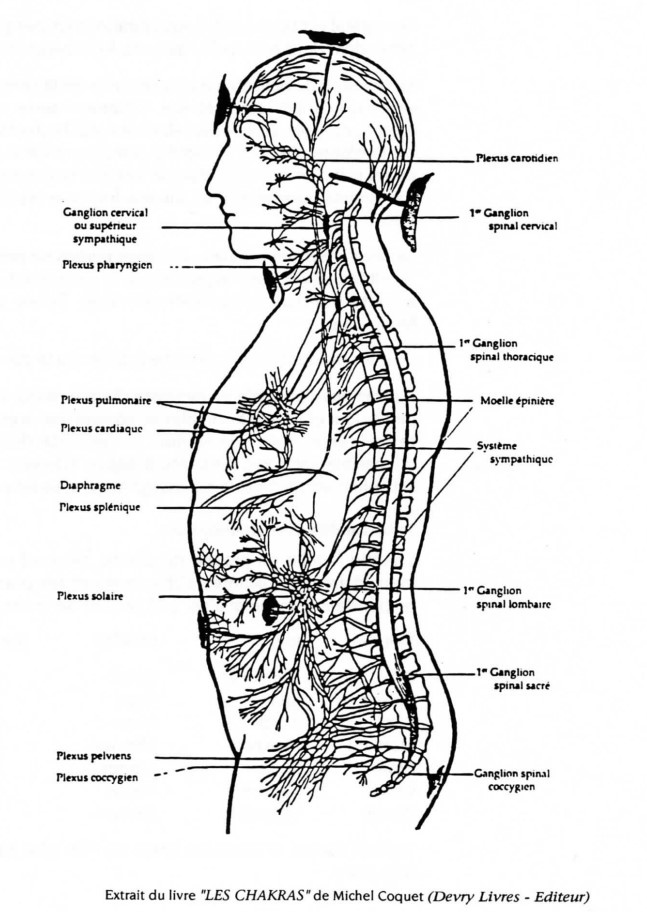
Chapter IV: Plants and Planets
The plant is very sensitive to the vibrations emitted by the planets, two of which are: the Sun and the Moon.
The Sun, essential for the growth of sap, thus represents the water element. The earth element is itself represented by the salt principle as well as by the saline structure of the plant. These are the principles : mercury (principle) and salt (principle) contained in the plant that animated by the 4 elements: earth, water, air, fire, make the plant alive and progress.
As the sap obeys the Moon, some parts can only be harvested in the ascending Moon, the sap being in full activity during the same period: flowers, peaks, leaves, stems.
For the roots it will have to wait until the end of the descending Moon.
It would be possible to pick each plant in accordance with the favorable day and time in conjunction with its main planet, but this would make picking difficult or impossible, because if the sky is too cloudy, if the wind blows or if the rain has fallen, the collection cannot be done.
Table of Correspondences
Each family or plant group, depends mainly on one of the alchemical planets and the planets correspond to a metal as well as a day of the week:
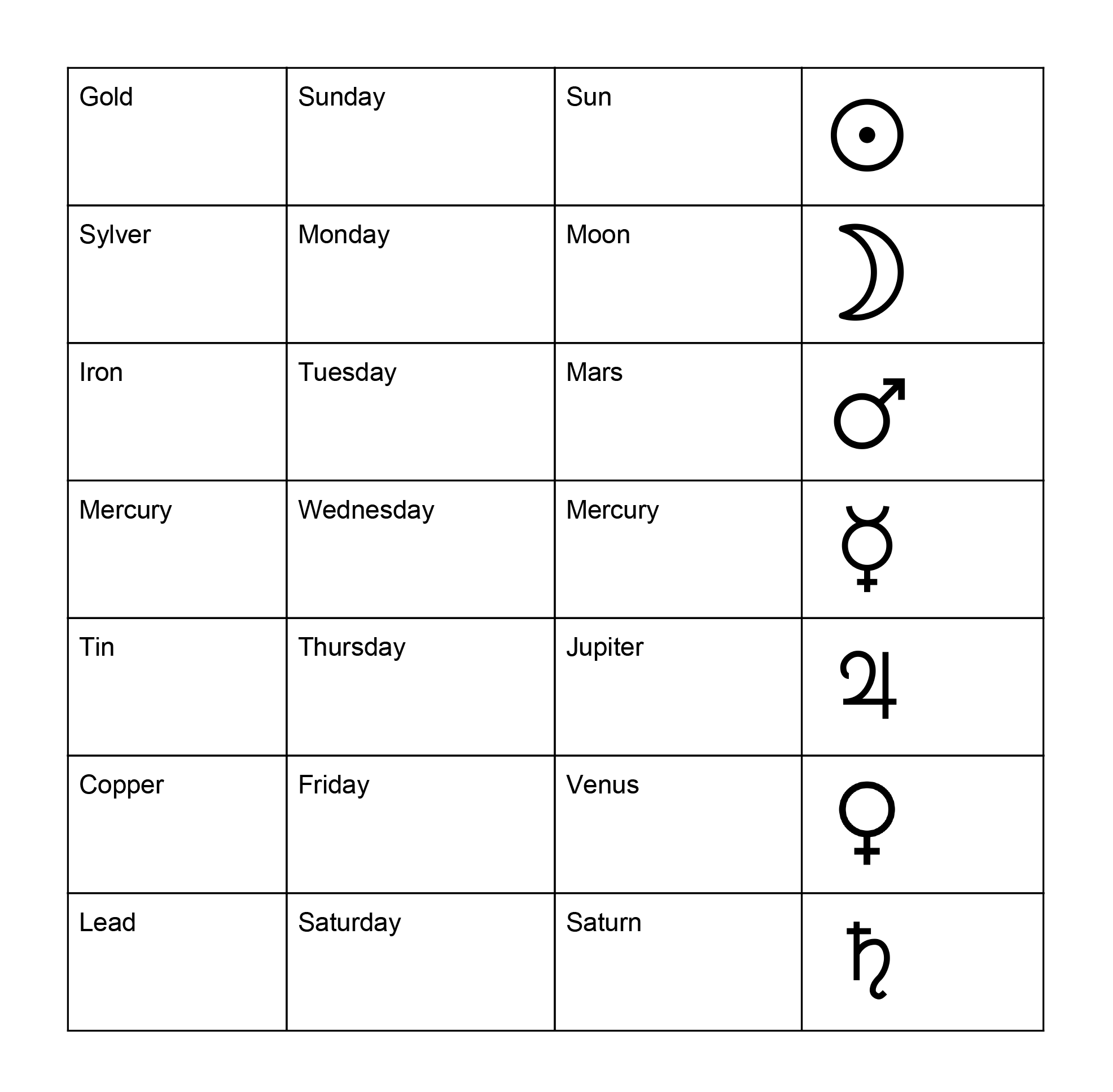
Uranus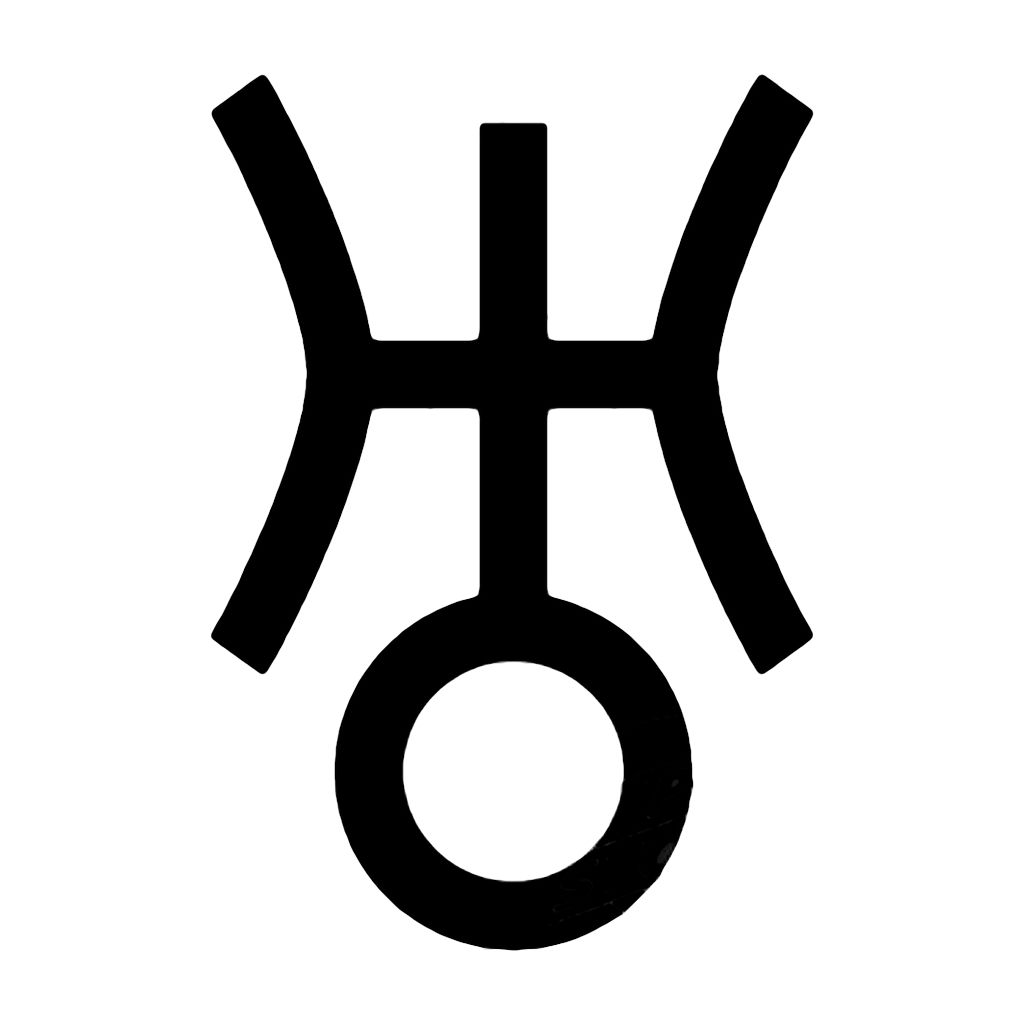 Pluto
Pluto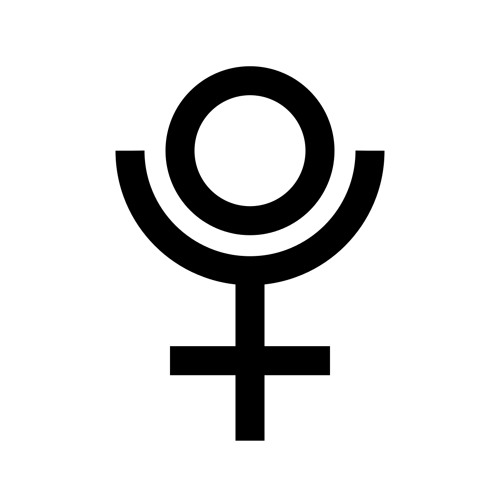 and Neptune
and Neptune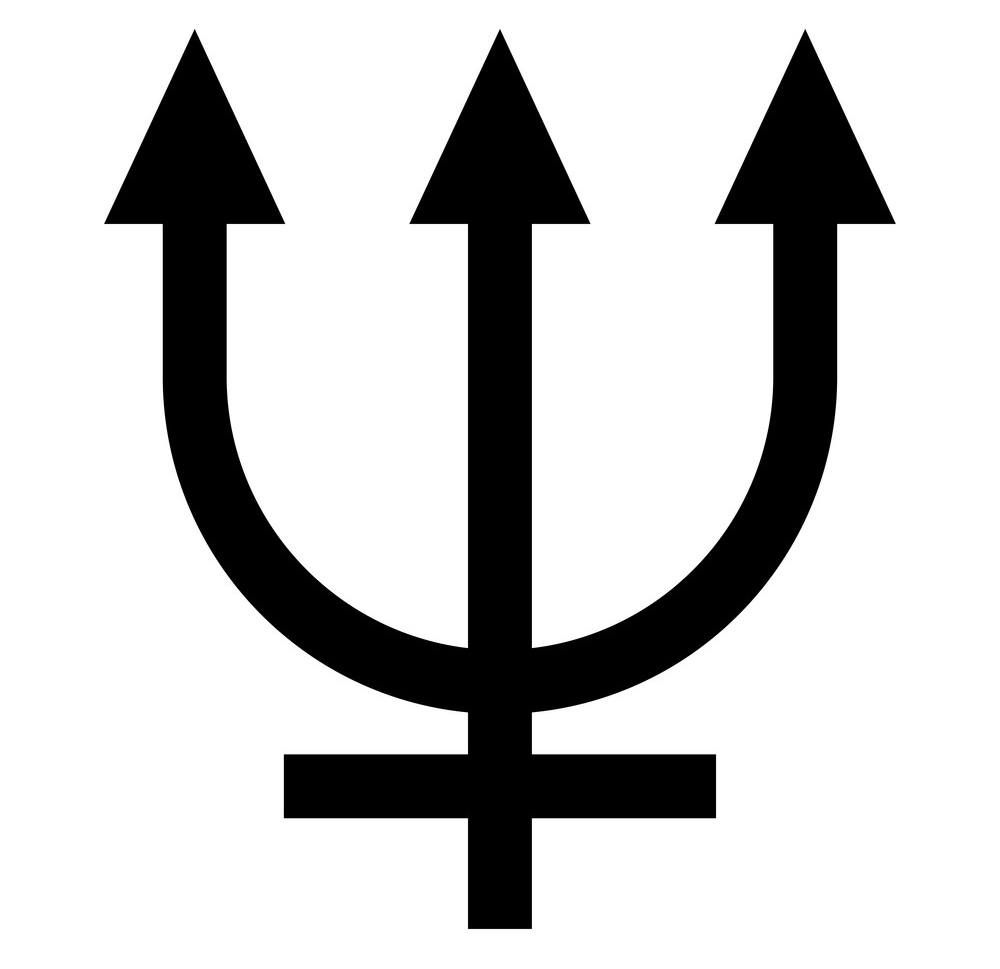 have a more subtle but important role.
have a more subtle but important role.
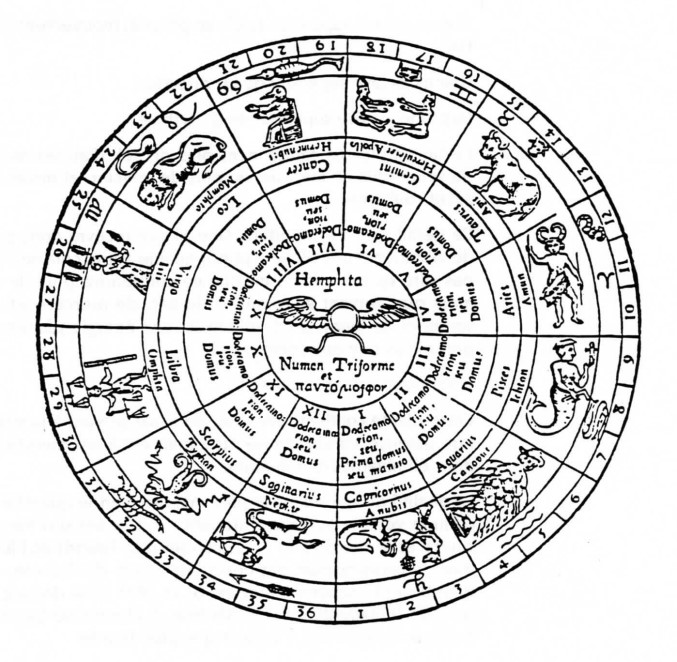
This engraving, which superimposes the Greek, Latin and Egyptian version of the zodiac, testifies to the fusion of cultures characteristic of the whole development of astrology, with each new phase adding its own discoveries and interpretations (thus the 36 decants that circle the diagram). The study was soon so complex that astrology became a profession in its own right: hence the flowering of the worst and best practitioners. The emperors of Rome, for example, at the same time as consulting their Chaldeans (so called astrologers) on political matters, had to expel the charlatans who abused the credulity of their subjects. (Hieroglyphic map of the zodiac, after A. Kircher, Oedipus Aegyptiacus, 1653).
Pluto, upper octave of : amplitude, spatial motion.
amplitude, spatial motion.
Uranus, upper octave of : direction.
direction.
Neptune, upper octave of : rhythm.
rhythm.
Some plants contain more salt, others less salt and more mercury, or more mercury and less salt and sulphur, etc.
This detail is very important. A plant will therefore receive more vibration from one planet than another, this does not mean that a Martian plant will contain more iron but depending on its amount of salt, mercury and sulphur and their quality, it will fix a planetary energy more Martian than Solar.
Let's take an example: the horsetail.
This plant contains a lot of silica used for bone structure, cartilaginous etc. but is also diuretic and therefore mineral-eliminating.
The quality of its salt is impure but in large quantities and as you now know it is salt that fixes sulfur and mercury and it is certain that the mind and soul in the human body need silica, Saturn, lead that brings it back to earth. If in addition you give the remedy on Saturday, the day of Saturn, at the time when Saturn dominates, the information will be even greater.
Chapter V: Zodiac, Metals and Body Embodiement
A planet is also related to a zodiac and to a part of the human body or organ.
Saturn, The Lead
Lead is unclean and imperfect. It is composed of imperfect, unclean, unstable, earthly and powdery mercury, unclean, unstable, slightly white on the outside and red on the inside. Its sulfur is similar and on top it is combustible. Saturn lacks fixity, purity, colour, cooking.
It contains too much unclean salt.
1.Relationship with the zodiac: it governs
The Saturnian-toned Capricorn, Earth element
It symbolizes the land and high places, mountains and peaks, isolated and inaccessible places, struggles, obstacles and blocades, bad luck and falls of fortunes, career peaks, decline, night, old men, deformed and sordid things.
Qualities: internalization, movements, materiality, ambition, responsibility, method, administration, duty, integrity, absorption, economy, perseverance, industry, tact and diplomacy, cold-bloodedness, prudence.
Defects: discouragement, pessimism, resentment, coldness, isolation, cold and reserved character, does not externalize, selfish, attaching too much importance to social success, too rigorist in principles.
Aquarius in Saturnian and Uranian tone, air element
It symbolizes air, mind, brotherhood, humanitarian feelings, cooperation, new and unforeseen things, movements and major social problems, psychology, electricity, vibration, rhythm, inventions, progress, aviation, the unconventional, advanced ideas, freedom and friendship.
Qualities: externalization, will, intellect, brotherhood, freedom, progress, affection, social, friendship, fidelity, sincerity, inventive and psychological reasonable tendency, altruism, independence, latent power of sympathy.
Flaws: disdain for conventions, rebellious independence and dance, eccentricity, unexpected and abrupt way of acting.
2.Action on organs and body parts
Capricorn directs knees, kneecaps, meniscus, skin and bones, concretions, joins, mineral salts, nails, teeth, hair, mineralization or demineralization.
Aquarius directs legs, shins, fibula and leg muscles, ankles to calcaneum, peripheral circulation, brain electricity (remote control).
3.Action of the planet on the body
Saturn, lead, governs bones, teeth, right ear, spleen and bladder. It coagulates dissolved salt to form bones, solidifies soft parts, fixes passive liquids, and determines them in their specification.
4.Action of metal in the body
Lead tempers the violent and feverish nature of the Sun (gold) and March (iron) retains this mobility of the Moon and Mercury by its cold, dry and retensive quality. It gives body to tissues, fibers, nerves and ligaments.
It moderates the warm and alkaline nature of bile by its cold acidity. It nourishes and consolidates bone structure.
Jupiter, Tin
Tin is an almost pure body, imperfect in the disharmony between its 3 principles: its mercury is pure, fixed and volatile, shiny, white on the outside, red on the inside, its sulfur has the same qualities. It is only missing from the tin to be a little more cooked and digested. It contains too much pure and unclean salt.
1.Relationship with the zodiac: it governs
The Pisces with a Neptunian and Jupiterian tone, water element
It symbolizes water and sea, ocean, large animals, moving shocks, variable, changing, silent, dumb people, discreet, peaceful, soft and hidden, hospitality, drink, good flesh, concealment, crime, deception and vice, dangers of loss of reputation and freedom, hospital and great diseases, generosity, philanthropy.
Qualities: internalization, adaptation, sensation, inspiration, mysticism, sacrifice, psychic tendency, hospitality and receptivity, imagination, generosity, compassion, sentimentality.
Defects: indecision, impressionability, sensationalism, attraction to drink and stimulants, morbid tastes, natural tendency to anxiety, excess imagination, sensitivity, lack of stoicism.
The Sagittarius with a jupiterian tone, element of fire
It symbolizes foreign countries, great journeys, adventures, curious and attractive things, children, risky games and businesses, high trade, outdoor life, physical exercises, dance and sports, horse racing, speed, betting over excess to fortune, philosophy, religion and high clergy, legal things, prophecies.
Qualities: externalization, adaptability, vitality, enthusiasm, optimism, high science, law, religion, philosophy, wisdom, intuition, prophecy, independence, outdoor living, sport, taste for travel, audacity, recklessness of dangers.
Faults: anxiety, diffusion, rebellious tendency, recklessness, risk, being a gambler, adventurer of rather elastic morality, wandering provisions or attraction too great for the foreigner, for the exotic, exaggerated taste of the "chance to run".
2.Action on organs and body parts
The Pisces directs the feet, mucous membranes, lymph, synovial and intestinal fluids, toes.
Sagittarius directs the pelvis, hips, the last vertebral disc (15 51), the sacroiliac vertebrae and coccygians (in relation to the scorpion sign) the sciatic nerves, buttocks, thighs, gallbladder, liver, blood, capillaries and arterioles, the femoral artery.
3.Action of the planet on the body
Jupiter governs the liver, veins, lungs, diaphragm, muscles and flanks.
4.Action of metal in the body
Tin is countervailing mood and humoral balance. It presides over oxygenation and blood circulation, nourishes muscles and tones tissues, its generous nature, regulates the functions of assimilation and alleviates dissonances born of other planets.
March, Iron
Iron is unclean and imperfect. It is composed of unclean mercury little pure mercury, too fixed and combustible, white and red earthy parts without splinters. It lacks flexibility, purity, weight. It contains too much unclean salt and too much unclean sulphur as well as too many combustible earthy parts.
1.Relationship with the zodiac: it governs
The Scorpio with a Martian and Plutonian tone, water element
It symbolizes the hidden forces, the demon, the mystery, the black magic, the strange things, the hidden powers of man, the destruction, the suicide, the death, the need to reproduce, the evil beings, the sneaky enemies, the revenge, the dangerous journeys especially by water, the dangers of submersion, the passionate dramas, jealousy and thwarted loves.
Qualities: internalization, willpower, emotion, regeneration, curiosity, mysticism, skill, conscience and scruples in actions.
Faults: passions, envy, mystery, jealousy, arrogance, destructive critical thinking, tyranny, whole and exclusive character, hatred, brutality, violence.
The Martian-toned Aries, fire element
It symbolizes the beginning, in the morning, spring, the keys, command, strength, violence, impulse, authority, virility, youth.
Quality: courage, initiatives, command, ambition, self-confidence, desire for authority, generosity, enthusiasm, audacity, enterprise, sometimes brilliant ideas, desires for immediate execution of great independence.
Faults: greed for change, violence, adventure, impulse, recklessness, hasty judgment, changing mind, lack of perseverance, head knock, intervention in the affairs of others.
2.Action on organs and body parts
Scorpio directs the bladder, urethra, descending colon and sigmoid, rectum, anus, nose and sinuses, internal and external genitalia (prostate), sex hormones, urine, sweat, menstrual.
Aries directs the head, face (not nose or ears), brain, meninges (brain), eyes, upper gums (upper jaw), internal carotids and the inside of the cranial box.
3.Action of the plant on the body
Mars governs the gallbladder, the man's genitals, the kidneys.
4.Action of metal in the body
Iron is active and warm, it stimulates the cold and atonic influence of Saturn's moon. It activates and tones muscles and activates digestion by its action on bile and liver. Its virile nature provokes desire and is therefore factor of generation by its action on the kidneys. It stimulates the elimination functions and compensates for the passive nature of Venus and the Moon.
Venus, Copper
Copper is impure and imperfect composed of pure mercury and impure mercury (in large quantities), unstable, terrestrial, combustible, red and without shine. The same goes for sulphur: it lacks fixity, purity, weight, it contains too much unclean color and un combustible earthy parts, too much unclean and pure salt.
1.Relationship with the zodiac: it governs
Libra with Venusian tone, air element
It symbolizes air, flat surfaces, balance, complementary principle, associations, marriage and agreements, spouses, middle age, autumn, few enemies but obstacles to projects, troubles for women.
Qualities: externalization, movement, intellect, balance, equity, judgment, art, comparison, sympathies, taste for art, refinement, approval, sense of justice, delicacy, affectionate temperament, instinctive need for union or association.
Defects: indolence, lack of perseverance, lightness, search for gay and easy life, is easily influenced by flattery and subjects everything to love, indecision.
The Taurus with Venusian tone, earth element
It symbolizes the beauty of matter, the land, the plains, the life of the fields, the material constructions, the endurance, the strength, the management, the permanent gain, the stable and sustainable things.
Qualities: attraction for the manifestation of art and beauty, vocal talent, lasting feelings, endurance, resistance, toil, clamor, patience, loving disposition and inclination to pleasure.
Faults: slowness, gluttony, obstinacy, inertia, laziness, pride, strong prejudices, jealousy, excessive desire for money, pleasure seeker temperament, simplistic spirit, naivety.
2.Action on organs and body parts
Libra directs the kidneys, the spine and the lumbar marrow, the adrenals, the arteries, the bladder, the skin, the vasomotor system.
Taurus directs the neck, throat, lower jaw, mouth, tongue, cervical vertebrae, pharynx, ears, external carotids, salivary glands, tonsils, neck, high trachea, upper esophagus, thyroid, cervical bone marrow.
3.Action of the planet on the body
Venus governs the throat, breasts, belly, genitals of the woman, the lumbar region.
4.Action of metal in the body
Copper harmonizes functions in general and in particular the organs of the generation. It partly mitigates the febrile and violent influences of the Sun (gold) and Mars (iron) and fights Saturn's hypochondria (lead), it incites love and generation by the attractive influence it spreads on creatures. It is he who exalts feminine sensuality.
Mercury, Mercury
It contains almost pure mercury, little pure sulphur, a lot of unclean sulphur, little salt hence its liquidity.
1.Relationship with the zodiacs: it governs
Virgo with a mercurian tone, earth element
It symbolizes the earth, good people, resigned, duty, virginity, mourning of heart, sentimental disappointments, sorrows in love or marriage, annoyances for others, subordinate occupations and difficult honours, intestinal diseases.
Qualities: internalization; adaptability, materiality, calculus, commerce, criticism and logical analysis, discernment, insight, practical mind, medicine, chemistry, dietetics, subordinate work, practical efficiency, method, attention and ingenuity, awareness in service.
Faults: criticism, selfishness, shyness, fear of illness, picky mind, exaggeration of detail, lack of audacity and scope, "cut hair in four".
Gemini with a mercurian tone, air element
It symbolizes the air element, duality, business initiative, intellectual work, relationships, travel, commerce, failing businesses, writings, letters, news.
Qualities: externalization, adaptability, intelligence, studies, literature, ease of understanding, education, ingenuity, mental flexibility, eloquence, desire to learn, to inquire, curiosity for all areas, reason dominates, travel, change.
Defects: duality and dispersion of energy, nervousness and agitation, cunning, imitation, superficial mind, verbosity, little feeling.
2.Action on organs and body parts
Virgo directs the extension of the heart, the small intestine, the ascending and transverse colon, the tail of the pancreas, the lower part of the liver, the spleen, the wind, assimilation and absorption.
Gemini directs the trachea artery, bronchi, breathing, pulmonary alveoli, pleura, upper limbs, hands and shoulders, pulmonary capillaries, nerves and thymus.
3.Action of the planet on the body
Mercury governs the thighs, feet, arms, hands, tongue, nerves and ligaments.
4.Action of metal in the body
Mercury metal regulates the transmitting organs, collectors and motors. It transforms the will into an act and informs the brain of external sensations, it controls and coordinates the relations of the nervous system. It is the principle of central innervation.
Moon, The Silver
Silver is a pure almost perfect body composed of a pure mercury almost fixed, shiny and white. And a sulfur that has the same qualities. However, the Moon (silver) lacks a little more fixity, colors and weight: it contains little pure salt.
1.Relationship with the zodiac: it governs
Lunar-toned Cancer, Water Element
It symbolizes the watery element, motherhood, wet heat, woman and home, generosity, generation and pregnancy, paternal home, parents, adulthood, fluctuation, unexpected luck, summer.
Qualities: internalization, movement, emotions, great sensitivity and sentimentality, attraction to family life and groups, receptive character, sensitivity, maternal sympathy, economy, receptivity, memory, tenacity, strong influence of the entourage, fertile imagination, search for sympathetic atmosphere.
Defects: susceptibility, effeminate character, capricious change, shy, whimsical, impatient, exaggerated sensitivity, sick imagination, sterile regrets, whimsical character.
2.Action on organs and body parts
Cancer directs the stomach, breasts, pectorals, rib cage, milk, digestive juices (ferments, saliva), esophagus and intestine to the Rater bulb, upper liver, gallbladder, head of the pancreas, mucous membranes, albumin (blood serum, lymph), diaphragm.
3.Action of the planet on the body
The Moon governs the brain, the left eye, the left side of the man, the right side of the woman, the intestine and the stomach.
4.Action of metal in the body
Silver, a passive female receptor centre for the solar influx that it reflects and transmits in temperate mode. He presides over the organs of the female generation that are passive and receptive in nature. It governs the functions of nutrition by its action on the stomach and intestinal mucous membranes. The Moon (silver) is fertilized from the Sun (gold) so it nourishes and forms the germ through gestation in salt sea water.
Sun, Gold
Gold contains pure sulphur (hence malleability), a lot of pure mercury, little pure salt. Gold is a perfect body composed of perfect mercury, pure, fixed, shiny and red. And pure fixed sulfur, red and non-combustible.
1.Relationship with the zodiac: it governs
The Solar-toned Leo, Fire Element
It symbolizes fire, fires, drought, aridity, enthusiasm and domination, the high figures.
Qualities: externalization, will, vitality, ambition, authority, organization, pride and nobility, frankness, sincerity, fidelity, trust, magnanimity.
Faults: passions, vanity, anger, promptness, pride, tyranny, exaggerated character of fame and panache, tendency to dramatize, to play comedy or to star.
2.Action on organs and body parts
Leo governs the heart, blood waves, the large arteries and veins attached to it, the solar plexus, dorsal spine (and the backbone marrow), the body of the pancreas and its endocrine appearance and the spleen (with Virgo).
3.Action of the planet on the body
The Sun governs the heart, arteries, the right side of the man and the left side of the woman, the right eye.
4.Action of metal in the body
Gold - vital, active, dynamic gold, originating from the double movement analogous to the heart rate (systole and diastole) spreads throughout the body the vital principle via the heart, vasomotor nerves and the sympathetic.
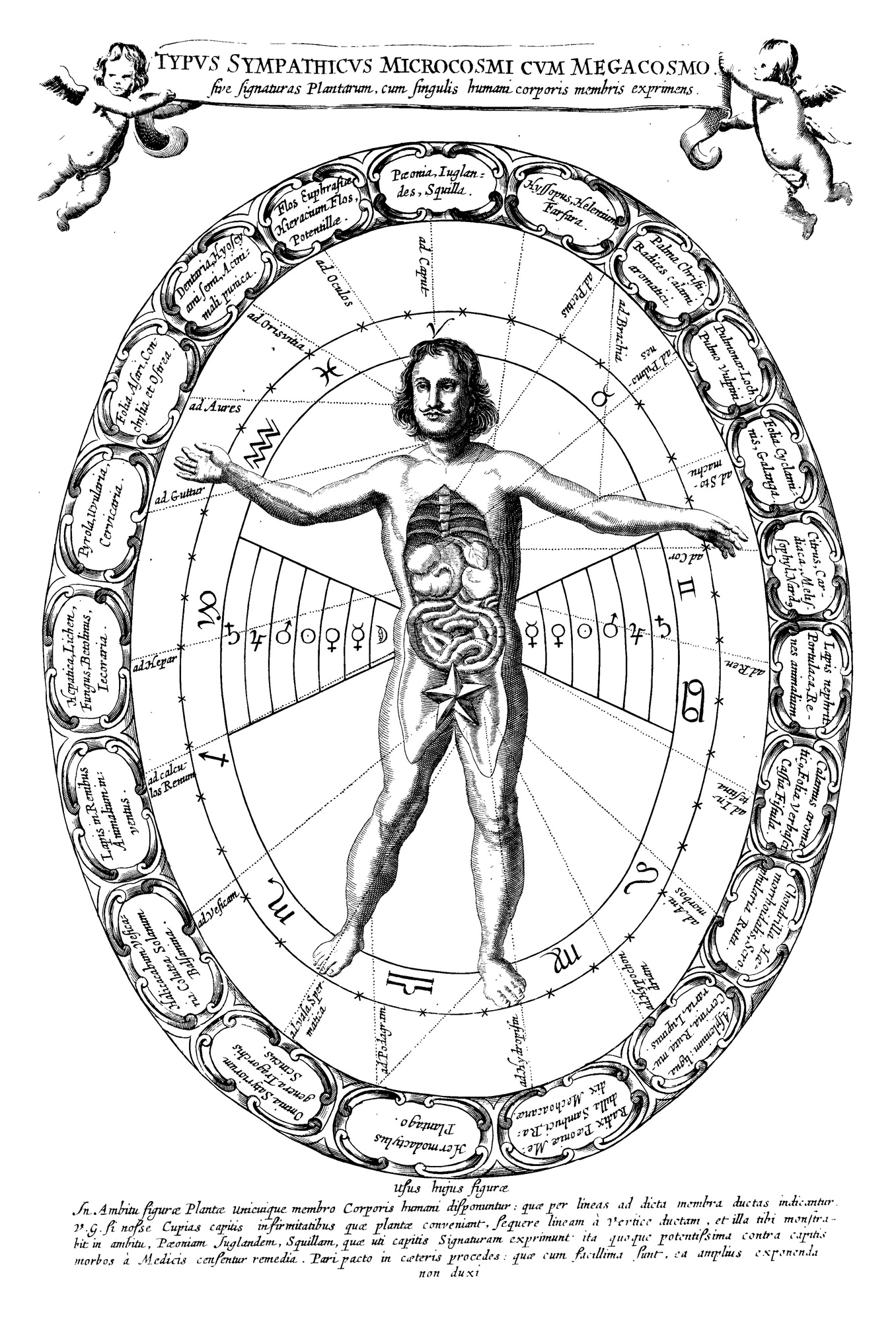
The Renaissance
With the Renaissance and its refinements, astrology became even more widespread. The new rich, the commercial aristocracy, came to form the educated class, seizing ideas hitherto reserved for a circle of scholars. The arts and sciences flourished and in this atmosphere of creation and discovery astrology found its place everywhere. Warlords, architects, painters, poets, merchants or sovereigns all used it in one way or another. The world seemed like a cosmic dance, and astrology was the master to dance. Art and science at the same time, it was at its zenith.
Medical astrology developed during the Renaissance. This diagram associates organs with planets and signs, as well as animal, plant or mineral substances that are remedies for them. It also shows the hours of medication. this kind of teaching material was essential for the medical student. (Oedipus Aegyptiacus, by Athanase Kircher, 1653).
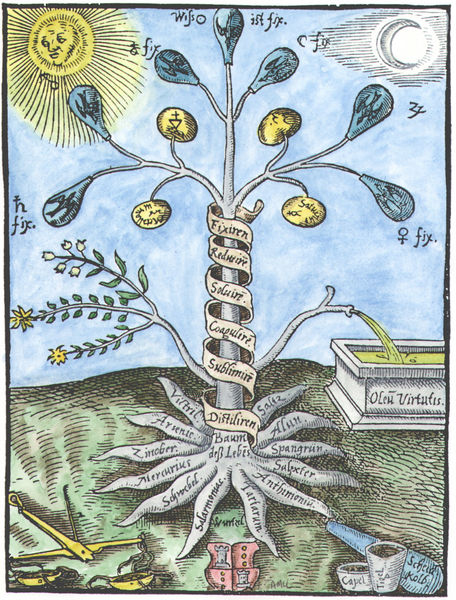
Occulte means hidden and this epithet applies to research that surrounds itself with mystery or is by nature incomprehensible to the layman. All human societies have had their occult disciplines, secret paths to spiritual development. Techniques and vocabulary are mostly obscure, both to discourage vain curiosity and to camouflage operations that orthodoxy cannot tolerate. Occultism has a bad reputation. Astrology has had to suffer attacks on its own account and its relationship with other traditions has made it even more vulnerable.
Magic borrowed a lot from astrology. These seven pentacles, each representing a planet or a luminary, mix astrology, Kabbalah and the world of spirits or archetypes. These kinds of evocations are quite foreign to the original spirit of Kabbalah and astrology. In this alchemical diagram, planets and luminaries appear clearly, all centered on the mutable Mercury, a transformative principle. The two-headed bird symbolizes the dual character, active and passive, of the alchemical operation. ("Our Mercury," the source of all transformation, wood, 16th century.)
Each Metal (or planet, zodiac) conveys energy of construction, movement or electricity (detonator), or: salt energy (memory), mercury (movement) or sulphur (electricity).
Table Summary: Zodiac, Metals And Body Parts
Metal | Planet | Zodiac | Energy | Principle |
Iron | Mars | Taurus | electricity | Sulphur |
Copper | Venus | Bull | movement | Mercury |
Mercury | Mercury | Gemini | memory | Salt |
Silver | Moon | Cancer | electricity | Sulphur |
Gold | Sun | Leo | movement | Mercury |
Mercury | Mercury | Virgo | memory | Salt |
Copper | Venus | Libra | electricity | Sulphur |
Iron | Mars | Scorpio | movement | Mercury |
Tin | Jupiter | Sagittarius | memory | Salt |
Lead | Saturn | Capricorn | electricity | Sulphur |
Lead | Saturn | Aquarius | movement | Mercury |
Tin | Jupiter | Pisces | memory | Salt |
Chapter VI: The 7 States Of Each of the 3 Worlds And The Chakras in Relationship
The human body is surrounded by 7 bodies of light of different frequencies and qualities: every thought, emotion will have an influence on these. A joy, a desire, a thought of jealousy, anger etc... will be automatically printed permanently or temporarily in the layer corresponding to the emotion or thought emitted and subsequently on the gland (or organ) in relation to the physical plane.
We could say that the printed geometric shape defines thought. The color on the shape, the quality, the sharpness of the outline will tell us if it is emitted forcefully. (Example: the square is a concrete, defined form; if it is red, the thought is imprinted with anger; if the outline is blurred, the thought is only transient).
Each body contains in it 7 levels composed of 4 elements and 3 principles, which gives: 7 x 7 = 49 degrees.
The first three bodies are accessible to our human understanding.
Indeed, if we can try to understand the physical body (made up of the dense body and the vital body) as well as the astral and mental body (causal, Buddhist and atmic worlds are out of human thought).
So we will define only 3 bodies with of course an alchemical approach because we could approach them differently.
Each body therefore has 7 degrees in it: the 4 elements (earth, water, air, fire) and the 3 principles.
Each body is ruled by 3 master or archetypal planets, which themselves direct the 7 sub-planes: the 7 states.
The 7 States of the Physico-Etheric Body
The Physico-Etheric Body (physical world)
Dominant principle: salt
Leading planets: Earth (antimony), Saturn (lead) and Jupiter (tin)
1.The Earth (antimony), directs the 4 lower states of the physical-etheric body in relation to the 4 elements: earth, water, air, fire.
The 7th State
Earth element, led by Saturn (lead) and Jupiter (tin).
Saline terrestreity:
It is the solid aspect of physical fitness, the chemistry of organic solids that governs assimilation and elimination at the level: brain, heart, lungs, spleen, liver, stomach, intestines, kidneys, pancreas.
The 7th state is led in its form by the triangle of the earth element (Saturn, Venus, Mercury).
These three planets put together give the melancholy temperament.
The 7th state is related to the 1st and 2nd chakra (adrenals, gonads).
The 6th State
Water element, led by Mars.
Liquid saline terrestreity (water).
This is the liquid aspect of the chemical form (hormonal glands).
The 6th state is led in its form by the triangle of the water element (Jupiter, Moon, Mars).
These three planets put together give the lymphatic temperament.
The 6th condition is related to the 3rd chakra (pancreas).
The 5th State
Air element, led by Venus (copper).
Gaseous saline terrestreity (air) .
This is the aspect of the chemical form: the neurotransmission of the central, sympathetic and parasympathetic nervous systems. Gas chemistry.
The 5th state is directed in its form by the triangle of the air element (Venus, Saturn, Mercury).
These three planets put together give the bilious temperament.
The 5th condition is related to the 4th chakra (the thymus).
2.Saturn, with the Earth, leads the 4th state, an intermediate plane between the dense physics and the vital plane of it.
The 4th State
Fire element, directed by Mercury.
Igneous saline terrestreity terrestreiality(fire).
It is the chemical etheric aspect of form, assimilation-elimination, (ether) blood, energy chemistry, chemical ether, fire chemistry (oxydo-reductions).
The 4th state is directed in its form by the triangle of the element fire (Mars, Sun, Jupiter).
These three planets put together give the blood temperament.
The 4th condition is related to the 5th chakra (parathyroids).
3.Saturn (lead) and Jupiter (tin) lead the 3rd state
The 3rd State
In relation to the principle of imperfect volatile salt (mother), vital aspect, sexuality, genetic conservation instinct, genetic chemistry (dynamics).
The 3rd state is led in its form by Mercury.
The 3rd condition is related to the 5th chakra (thyroid).
4.Jupiter (tin), directs
The 2nd State
In relation to the mercurial principle (the Son).
It contains a fixed and perfect salt and an imperfect volatile salt.
Appearance ether light, (sensory perception), brain, subtle spine, heat chemistry.
The 2nd state is ruled in its form by the Moon (silver).
The second condition is the 6th chakra (the pituitary gland).
The 1st State
In relation to the sulphur principle (the Father). It contains a fixed and perfect salt.
Reflective ether aspect, vehicle of memory and thought, brain, memory, memory chemistry, brain electricity.
The 1st state is directed in its form by the Sun (gold).
The first state corresponds to the 7th chakra (the pineal).
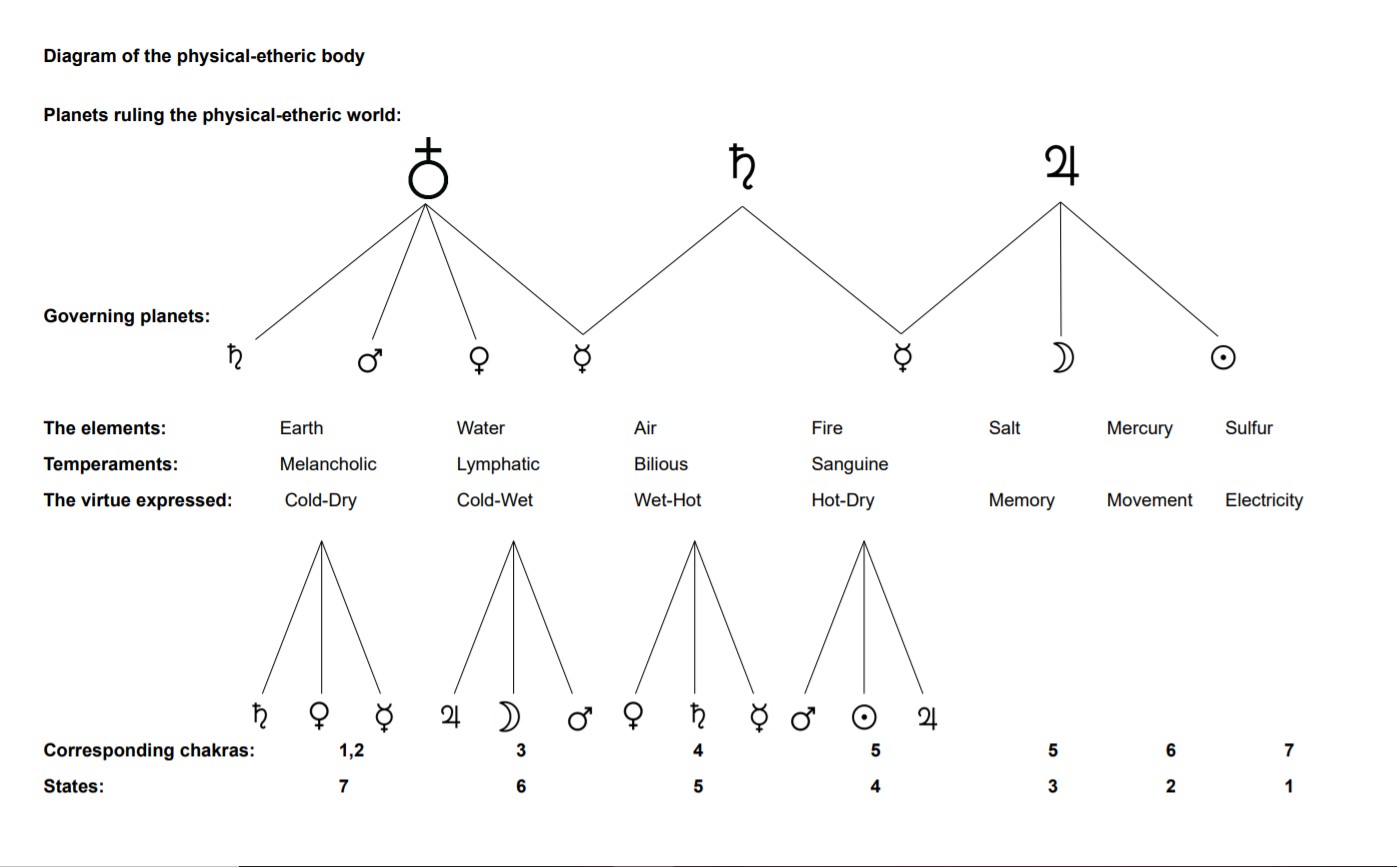
The 7 States of the Astral Body
The Astral Body (emotional world of desire)
Dominant principle: mercury
Leading planets: Mars (iron) for the lower astral, Mars and Venus (copper) for the intermediate level and Venus for the plane of the emotional astral body.
1.Mars (iron) directs the three elements (earth, water, air) of the astral body.
The 7th State
Earth element, led by Jupiter (tin) and Mars (iron).
Liquid mercurial terrestreity (water). In relation to passions and vile desires, materialistic passions, coarse desires generating karma, sensual desire, selfish satisfaction.
The 7th state is led in its form by the triangle of the earth element (Saturn, Venus, Mercury).
These three planets put together give the melancholy temperament of the astral body.
The 7th condition is related to the functional of the 1st and 2nd chakras (adrenals, gonads).
The 6th State
Water element, led by Venus (copper).
Liquid mercurial terrestreity (water).
Impressionability, sensitivity, sentimentality, emotion, generates karma, impressions of fear, aggression, fear or courage and invincibility.
The 6th state is led in its form by the triangle of the water element (Jupiter, Moon, Mars).
These three planets put together give the lymphatic temperament of the astral body.
The 6th condition is related to the (functional) movement of the 3rd chakra (the pancreas).
The 5th State
Air element led by Mercury.
Gas mercurial terrestreity.
All wishes, generate karma, wishes towards various evolution.
The 5th state is led in its form by the triangle of the air element (Venus, Saturn, Mercury).
These three planets put together give the bilious temperament of the astral body.
The 5th condition is related to the functional of the 4th chakra (thymus).
2.Mars (iron) and Venus (copper), the two planets direct the 4th and 3rd state, intermediate plane between the lower and upper astral (level of awareness).
The 4th State
Fire element, directed by the Moon (silver).
Innate mercurial terrestriality terrestreity (fire).
Double feeling: interest, indifference, purgatory, enthusiasm, emotional motive for action or inaction.
The 4th state is directed in its form by the triangle of the element fire of the astral (Mars, Sun, Jupiter).
These three planets put together give the blood temperament of the astral body.
The 4th is related to the 5th chakra (the functional of parathyroids).
The 3rd State
In relation to the salt principle of the astral body (the Mother).
It contains an imperfect volatile mercury.
Life of the soul, begets love, creates duty, suppresses karma. Beauty ideal, artistic, philosophical, scientific, religious taste.
The 3rd state is led in its form by the Moon (silver).
The 3rd condition is related to the 5th chakra (the functional thyroid).
3.Venus (copper) directs the 2nd and 1st state of the upper astral plane.
The 2nd State
In relation to the mercury principle (the Son).
It contains perfect fixed mercury and imperfect volatile mercury.
Light of the soul, begets love, creates duty, suppresses karma. Altruistic ideal, selfless service, humanitarian heroism, philanthropic taste.
The 2nd state is ruled in its form by the Sun (gold).
The second condition is related to the functional of the 6th chakra (the pituitary gland).
The 1st State
In relation to the sulphur principle (the Father).
It contains perfect fixed mercury.
Power of the soul, begets love, suppresses karma, ideal, power, desire for fulfillment, harmony, justice, etc.
The first state is led in its form by Saturn (lead).
The first condition is related to the functional of the 7th chakra (the pineal).
Emotional Astral Body Scheme
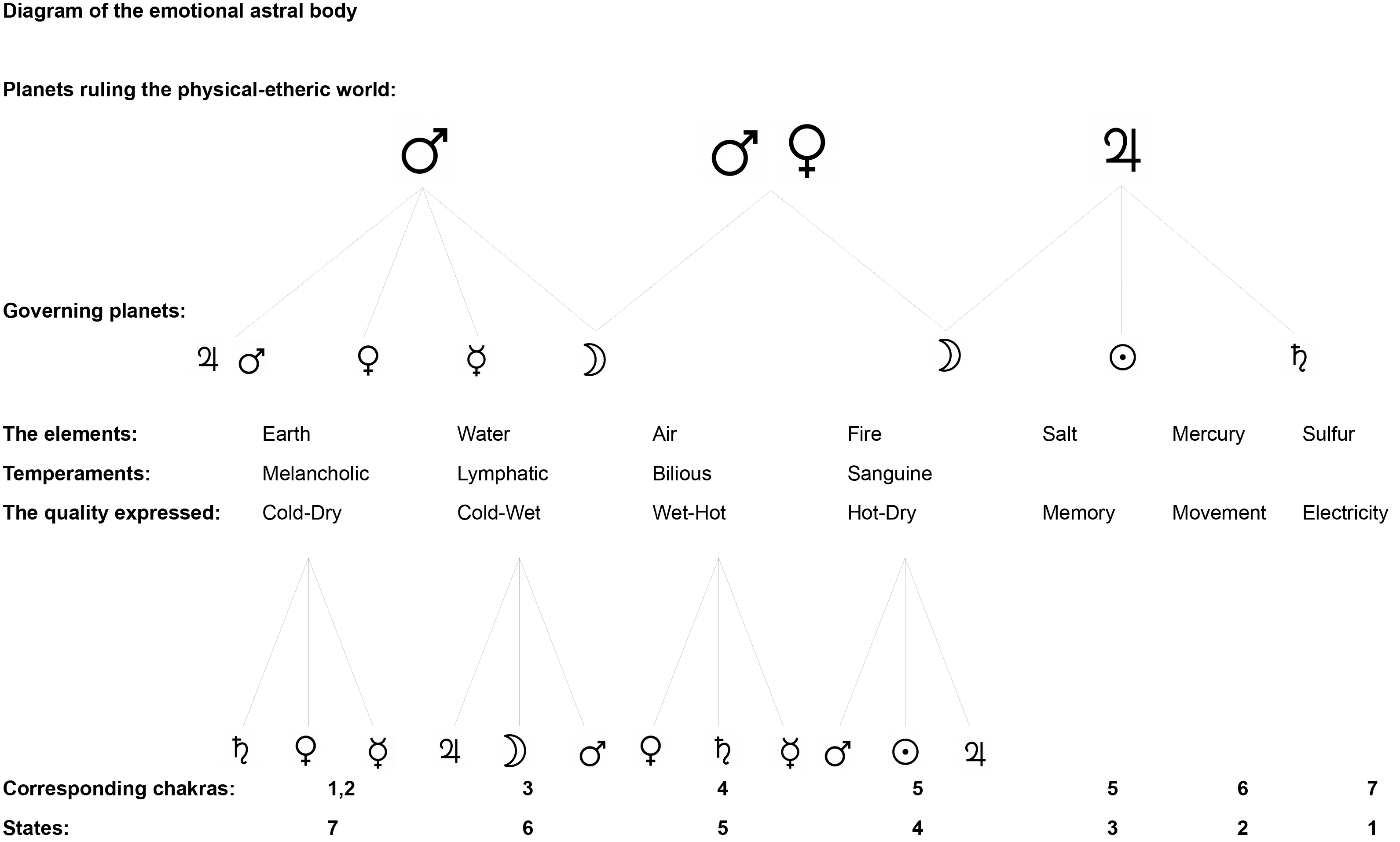
The 7 States of the Mental Body
The Mental Body (World of Thought)
Dominant principle: sulphur
Leading planets: the Moon (silver) for the lower mind, Mercury (mercury) for the intermediate plane, the informant, the Sun (gold) for the higher mental plane.
1.The Moon (silver) directs the four elements of the mental body (earth, water, air, fire).
The 7th State
Element, led by Mars (iron) and Venus (copper).
Solid sulphurous Terrestreity (earth).
Strength or archetypal ideas of form, earthly thoughts, lower thoughts, thought forms or organs archetype.
The 7th state is led in its form by the triangle of the earth element (Saturn, Venus, Mercury).
These three planets put together give the melancholy temperament of the mental body.
The 7th state is related to the 1st and 2nd chakra (adrenals, gonads).
The 6th State
Water element, led by Mercury.
Liquid sulphurous terrestreity (water).
Idea force or archetype of universal virility, thoughts, impressions, imagination, thought form hormonal vitality.
The 6th is led in its form by the triangle of the water element (Jupiter, Moon, Mars).
These three planets put together give the lymphatic temperament of the mental body.
The 6th condition is related to the 3rd chakra (pancreas).
The 5th State
Air element, directed by the Moon (silver).
Gaseous sulphurous terrestreity (air).
Idea force or archetype of desires and passions (emotions) thinking rockets, command, orders, thoughts forms of all desires, feelings experienced.
The 5th state is led in its form by the triangle of the air element (Venus, Saturn, Mercury).
These three planets put together give the bilious temperament of the mental body.
The 5th condition is related to the 4th chakra (the thymus).
2.Mercury, an intermediate planet, directs the plane of passage between the lower and upper mental, the 4th and 3rd states.
The 4th state
Element fire, directed by the Sun.
Innate sulphurous terrestreity (fire)
Germ idea or archetype of the intellect, archetype of 1/2/3 states, focal point by which the soul expresses itself in the world of incarnation, form idea of mental matter, activity, circulation of blood.
The 4th state is directed in its form by the triangle of fire (Mars, Sun, Jupiter).
These three planets put together give the blood temperament of the mental plane.
The 4th condition is related to the 5th chakra (the parathyroids).
The 3rd State
In relation to the salt principle of the mental body (the Mother).
It contains an imperfect volatile sulphur.
Lower ether appearance. Idea forms higher desires and emotions that animate artistic generosity (mental passions), body of the soul.
The 3rd state is directed in its form by the Sun (gold).
The 3rd condition is related to the 5th chakra (the thyroid).
3.The Sun (gold) directs the mental plane.
The 2nd State
In relation to the mercurial principle of the mental plane (the Son).
It contains a fixed, perfect sulfur and an imperfect volatile sulphur.
Intermediate ether aspect. Idea germ of life, idea form of vitality that animates the altruistic ideal (charity), body of the soul.
The 2nd state is led in its form by Saturn (lead).
The second condition is related to the 6th chakra (the pituitary gland).
The 1st State
In relation to the sulphur principle (the Father).
It contains a fixed sulfur.
Upper ether appearance. Germ idea of form, germ idea of universal harmony.
The first is in its form by Jupiter.
The 1st state is related to the 7th chakra (the pineal).
Mental Body Scheme
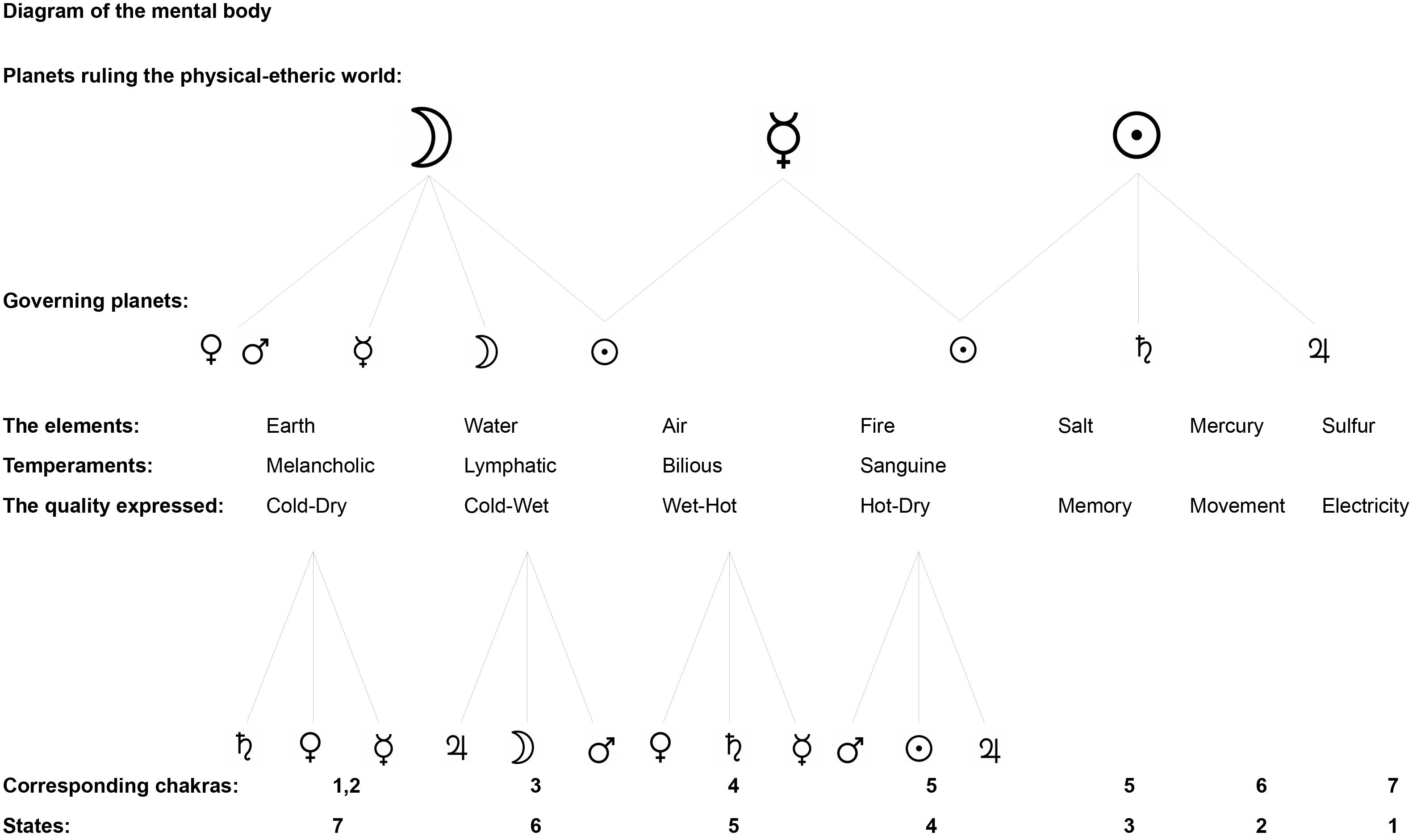
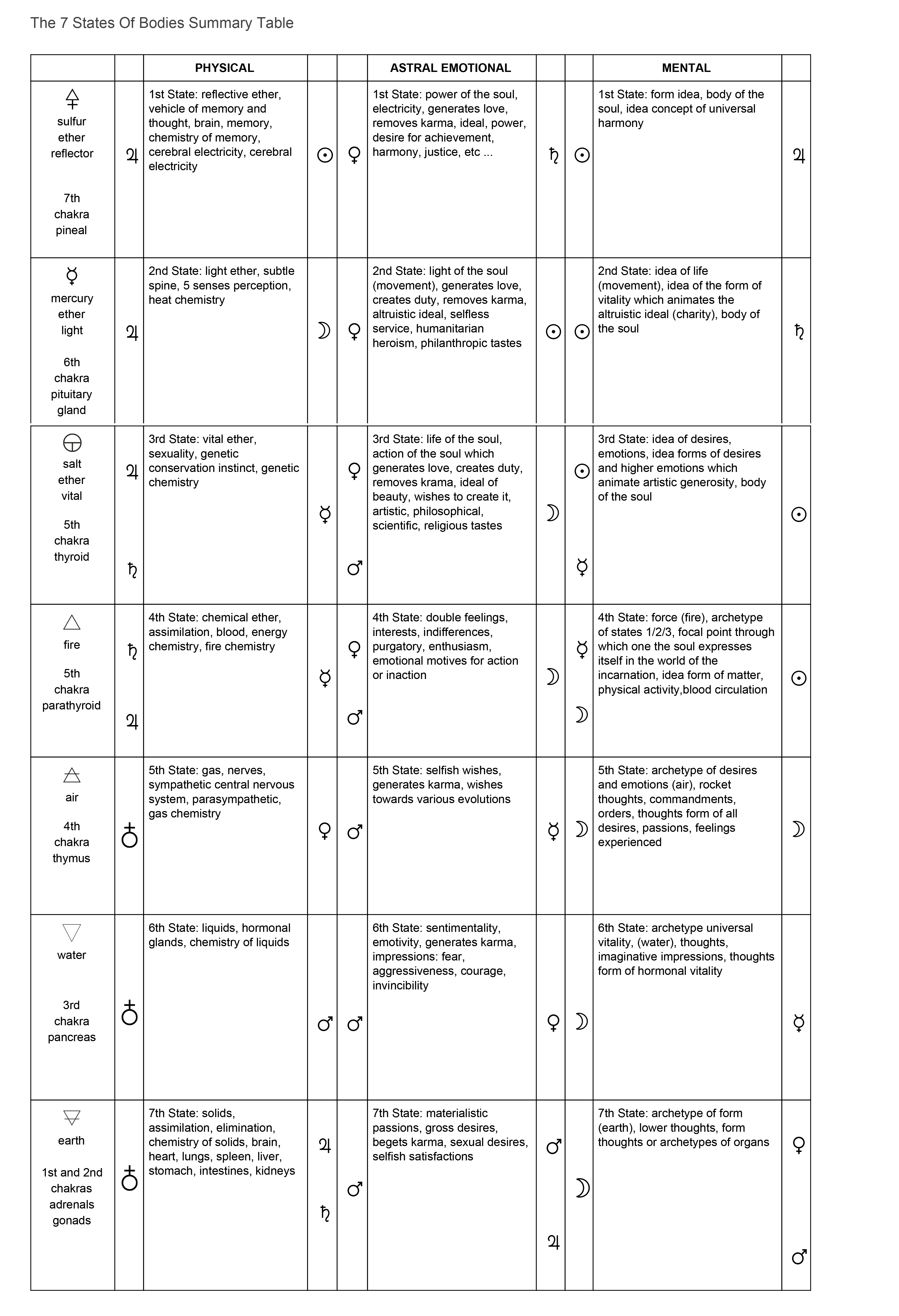
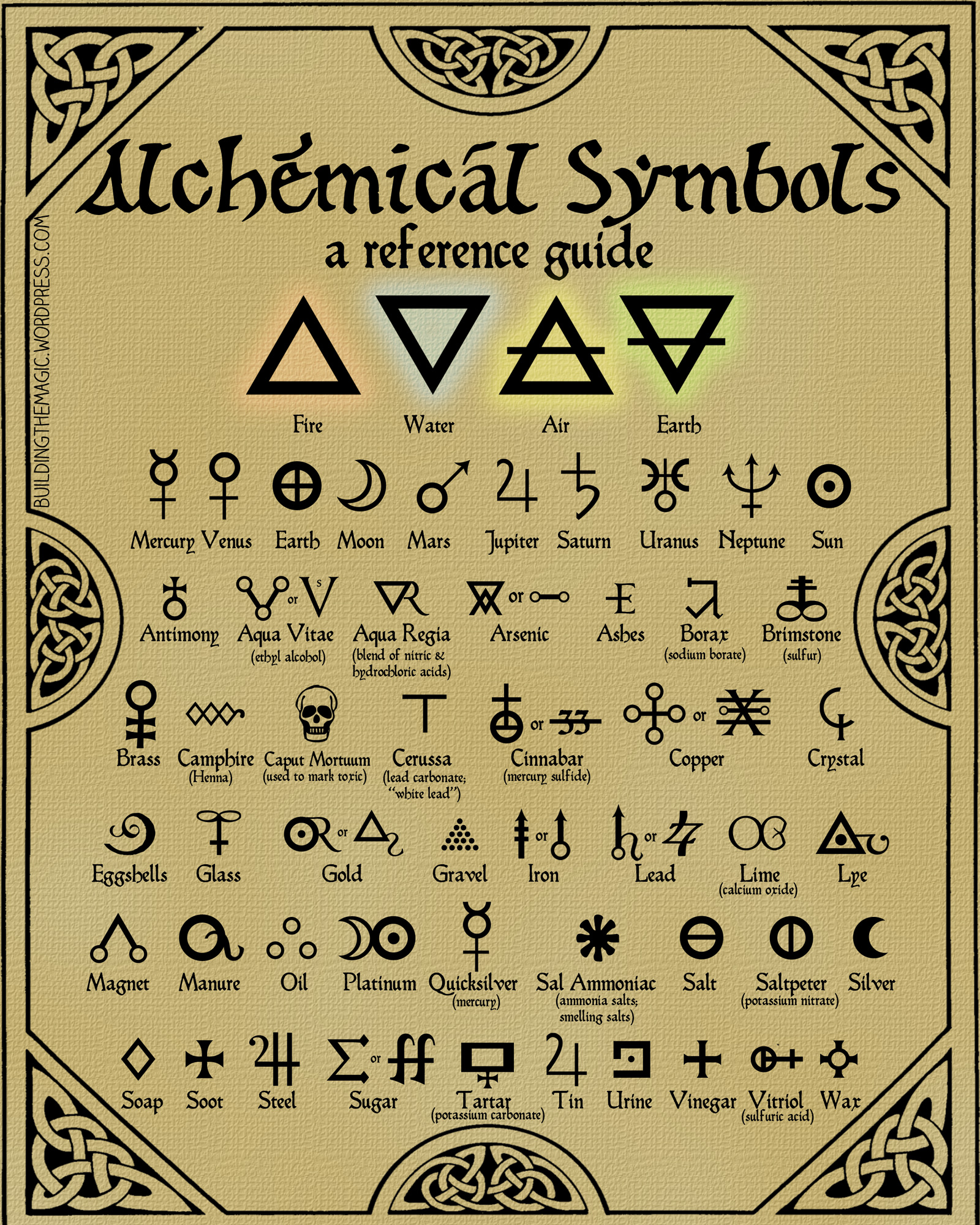
Copyright Fulmina Foundation
Powered by Froala Editor






